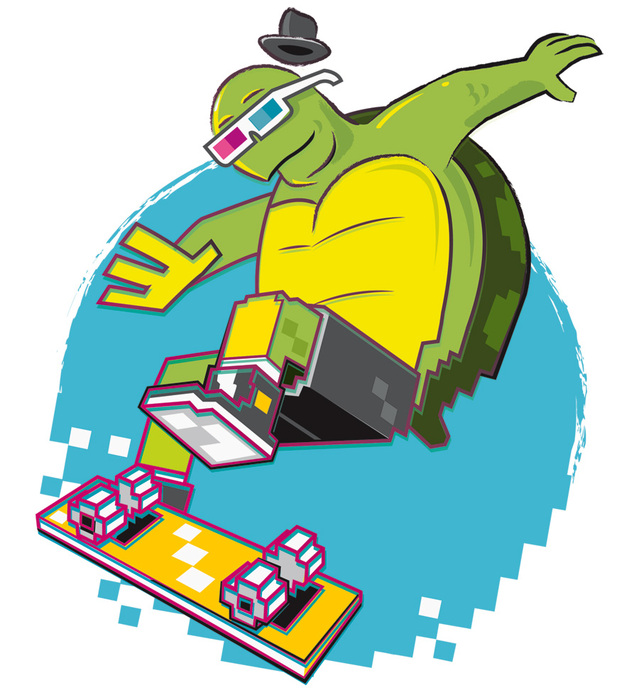We're pleased to announce the availability of the first beta release of ROS Indigo Igloo in the repositories. ROS Indigo Igloo now has over 500 packages including everything in ros-indigo-desktop-full as defined in REP 142 [1].
ROS Indigo Igloo will be our first LTS release synchronized to pair with the Ubuntu Trusty Tahr release which came out last month. The support period and a summary of distributions can be found on the wiki [2].
As this is an LTS release most of the core components have been focused on minor incremental improvements for stability and maintainability. For a summary of updates important to all developers please see the migration guide [3]. This is an aggregation of package changes which maintainers would like the community to be aware of. If you are maintaining a package and have made major changes it is encouraged to fill this page in before the final release.
This is the first beta release and we ask that people try out the system in the coming weeks. We have just recently detected a major issue with the Debian packaging system and thanks to the great community of ROS maintainers in one week we have rereleased over 300 packages.
To make sure that we have adequate testing we will delay the final release into June.
Full details of updated packages in Indigo Hydro and Groovy are below.
Updates to indigo (1 of 3)
Added Packages [28]:
* ros-indigo-amcl: 1.11.8-0
* ros-indigo-arbotix: 0.9.2-0
* ros-indigo-arbotix-controllers: 0.9.2-0
* ros-indigo-arbotix-firmware: 0.9.2-0
* ros-indigo-arbotix-msgs: 0.9.2-0
* ros-indigo-arbotix-python: 0.9.2-0
* ros-indigo-arbotix-sensors: 0.9.2-0
* ros-indigo-base-local-planner: 1.11.8-0
* ros-indigo-carrot-planner: 1.11.8-0
* ros-indigo-clear-costmap-recovery: 1.11.8-0
* ros-indigo-costmap-2d: 1.11.8-0
* ros-indigo-dwa-local-planner: 1.11.8-0
* ros-indigo-fake-localization: 1.11.8-0
* ros-indigo-global-planner: 1.11.8-0
* ros-indigo-map-server: 1.11.8-0
* ros-indigo-move-base: 1.11.8-0
* ros-indigo-move-base-msgs: 1.11.8-0
* ros-indigo-move-slow-and-clear: 1.11.8-0
* ros-indigo-nav-core: 1.11.8-0
* ros-indigo-navfn: 1.11.8-0
* ros-indigo-navigation: 1.11.8-0
* ros-indigo-openni2-launch: 0.2.1-0
* ros-indigo-pocketsphinx: 0.3.0-0
* ros-indigo-robot-pose-ekf: 1.11.8-0
* ros-indigo-rotate-recovery: 1.11.8-0
* ros-indigo-rviz-animated-view-controller: 0.1.1-0
* ros-indigo-view-controller-msgs: 0.1.2-0
* ros-indigo-voxel-grid: 1.11.8-0
Updated Packages [222]:
* ros-indigo-actionlib: 1.11.1-0 -> 1.11.2-0
* ros-indigo-actionlib-msgs: 1.11.3-0 -> 1.11.3-1
* ros-indigo-bond: 1.7.14-0 -> 1.7.14-1
* ros-indigo-bond-core: 1.7.14-0 -> 1.7.14-1
* ros-indigo-bondcpp: 1.7.14-0 -> 1.7.14-1
* ros-indigo-bondpy: 1.7.14-0 -> 1.7.14-1
* ros-indigo-camera-calibration-parsers: 1.11.3-0 -> 1.11.3-1
* ros-indigo-camera-info-manager: 1.11.3-0 -> 1.11.3-1
* ros-indigo-class-loader: 0.2.4-0 -> 0.2.5-1
* ros-indigo-common-msgs: 1.11.3-0 -> 1.11.3-1
* ros-indigo-control-msgs: 1.3.0-1 -> 1.3.0-2
* ros-indigo-control-toolbox: 1.11.0-0 -> 1.11.0-1
* ros-indigo-controller-interface: 0.8.0-0 -> 0.8.0-1
* ros-indigo-controller-manager: 0.8.0-0 -> 0.8.0-1
* ros-indigo-controller-manager-msgs: 0.8.0-0 -> 0.8.0-1
* ros-indigo-controller-manager-tests: 0.8.0-0 -> 0.8.0-1
* ros-indigo-cpp-common: 0.5.0-0 -> 0.5.0-1
* ros-indigo-cv-bridge: 1.11.2-0 -> 1.11.2-1
* ros-indigo-diagnostic-msgs: 1.11.3-0 -> 1.11.3-1
* ros-indigo-diff-drive-controller: 0.8.0-0 -> 0.8.0-1
* ros-indigo-dynamic-reconfigure: 1.5.36-0 -> 1.5.36-1
* ros-indigo-eigen-conversions: 1.11.3-0 -> 1.11.3-1
* ros-indigo-fcl: 0.3.0-1 -> 0.3.1-0
* ros-indigo-force-torque-sensor-controller: 0.8.0-0 -> 0.8.0-1
* ros-indigo-forward-command-controller: 0.8.0-0 -> 0.8.0-1
* ros-indigo-freenect-camera: 0.3.2-0 -> 0.3.2-1
* ros-indigo-freenect-launch: 0.3.2-0 -> 0.3.2-1
* ros-indigo-freenect-stack: 0.3.2-0 -> 0.3.2-1
* ros-indigo-gazebo-msgs: 2.4.3-0 -> 2.4.3-1
* ros-indigo-gazebo-plugins: 2.4.3-0 -> 2.4.3-1
* ros-indigo-gazebo-ros: 2.4.3-0 -> 2.4.3-1
* ros-indigo-gazebo-ros-pkgs: 2.4.3-0 -> 2.4.3-1
* ros-indigo-geometric-shapes: 0.3.8-1 -> 0.3.8-2
* ros-indigo-geometry: 1.11.3-0 -> 1.11.3-1
* ros-indigo-geometry-msgs: 1.11.3-0 -> 1.11.3-1
* ros-indigo-gripper-action-controller: 0.8.0-0 -> 0.8.0-1
* ros-indigo-hardware-interface: 0.8.0-0 -> 0.8.0-1
* ros-indigo-humanoid-msgs: 0.3.0-0 -> 0.3.0-1
* ros-indigo-humanoid-nav-msgs: 0.3.0-0 -> 0.3.0-1
* ros-indigo-image-common: 1.11.3-0 -> 1.11.3-1
* ros-indigo-image-geometry: 1.11.2-0 -> 1.11.2-1
* ros-indigo-image-transport: 1.11.3-0 -> 1.11.3-1
* ros-indigo-imu-sensor-controller: 0.8.0-0 -> 0.8.0-1
* ros-indigo-interaction-cursor-3d: 0.0.3-0 -> 0.0.3-1
* ros-indigo-interaction-cursor-demo: 0.0.3-0 -> 0.0.3-1
* ros-indigo-interaction-cursor-msgs: 0.0.3-0 -> 0.0.3-1
* ros-indigo-interaction-cursor-rviz: 0.0.3-0 -> 0.0.3-1
* ros-indigo-joint-limits-interface: 0.8.0-0 -> 0.8.0-1
* ros-indigo-joint-state-controller: 0.8.0-0 -> 0.8.0-1
* ros-indigo-joint-trajectory-controller: 0.8.0-0 -> 0.8.0-1
* ros-indigo-kdl-conversions: 1.11.3-0 -> 1.11.3-1
* ros-indigo-libccd: 1.5.0-0 -> 1.5.0-1
* ros-indigo-libfreenect: 0.1.2-1 -> 0.1.2-2
* ros-indigo-message-filters: 1.11.2-0 -> 1.11.3-0
* ros-indigo-mk: 1.11.1-0 -> 1.11.1-1
* ros-indigo-moveit-core: 0.5.8-0 -> 0.5.8-1
* ros-indigo-moveit-fake-controller-manager: 0.5.6-0 -> 0.5.6-1
* ros-indigo-moveit-planners: 0.5.5-0 -> 0.5.5-1
* ros-indigo-moveit-planners-ompl: 0.5.5-0 -> 0.5.5-1
* ros-indigo-moveit-plugins: 0.5.6-0 -> 0.5.6-1
* ros-indigo-moveit-python: 0.2.1-0 -> 0.2.2-0
* ros-indigo-moveit-ros: 0.5.18-0 -> 0.5.18-1
* ros-indigo-moveit-ros-benchmarks: 0.5.18-0 -> 0.5.18-1
* ros-indigo-moveit-ros-benchmarks-gui: 0.5.18-0 -> 0.5.18-1
* ros-indigo-moveit-ros-manipulation: 0.5.18-0 -> 0.5.18-1
* ros-indigo-moveit-ros-move-group: 0.5.18-0 -> 0.5.18-1
* ros-indigo-moveit-ros-perception: 0.5.18-0 -> 0.5.18-1
* ros-indigo-moveit-ros-planning: 0.5.18-0 -> 0.5.18-1
* ros-indigo-moveit-ros-planning-interface: 0.5.18-0 -> 0.5.18-1
* ros-indigo-moveit-ros-robot-interaction: 0.5.18-0 -> 0.5.18-1
* ros-indigo-moveit-ros-visualization: 0.5.18-0 -> 0.5.18-1
* ros-indigo-moveit-ros-warehouse: 0.5.18-0 -> 0.5.18-1
* ros-indigo-moveit-simple-controller-manager: 0.5.6-0 -> 0.5.6-1
* ros-indigo-nao-bringup: 0.2.3-0 -> 0.2.3-1
* ros-indigo-nao-description: 0.2.3-0 -> 0.2.3-1
* ros-indigo-nao-driver: 0.2.3-0 -> 0.2.3-1
* ros-indigo-nao-msgs: 0.2.3-0 -> 0.2.3-1
* ros-indigo-nao-pose: 0.2.3-0 -> 0.2.3-1
* ros-indigo-nao-robot: 0.2.3-0 -> 0.2.3-1
* ros-indigo-nav-msgs: 1.11.3-0 -> 1.11.3-1
* ros-indigo-nmea-msgs: 0.1.0-0 -> 0.1.0-1
* ros-indigo-nodelet: 1.8.3-0 -> 1.8.3-1
* ros-indigo-nodelet-core: 1.8.3-0 -> 1.8.3-1
* ros-indigo-nodelet-topic-tools: 1.8.3-0 -> 1.8.3-1
* ros-indigo-octomap: 1.6.4-1 -> 1.6.5-0
* ros-indigo-octomap-msgs: 0.3.1-4 -> 0.3.1-5
* ros-indigo-octomap-ros: 0.4.0-0 -> 0.4.0-1
* ros-indigo-octomap-rviz-plugins: 0.0.5-0 -> 0.0.5-1
* ros-indigo-octovis: 1.6.4-1 -> 1.6.5-0
* ros-indigo-openni2-camera: 0.1.2-0 -> 0.2.0-0
* ros-indigo-orocos-kdl: 1.2.2-1 -> 1.2.2-2
* ros-indigo-pluginlib: 1.10.0-0 -> 1.10.0-1
* ros-indigo-polled-camera: 1.11.3-0 -> 1.11.3-1
* ros-indigo-position-controllers: 0.8.0-0 -> 0.8.0-1
* ros-indigo-python-orocos-kdl: 1.2.2-1 -> 1.2.2-2
* ros-indigo-qt-dotgraph: 0.2.23-0 -> 0.2.24-0
* ros-indigo-qt-gui: 0.2.23-0 -> 0.2.24-0
* ros-indigo-qt-gui-app: 0.2.23-0 -> 0.2.24-0
* ros-indigo-qt-gui-core: 0.2.23-0 -> 0.2.24-0
* ros-indigo-qt-gui-cpp: 0.2.23-0 -> 0.2.24-0
* ros-indigo-qt-gui-py-common: 0.2.23-0 -> 0.2.24-0
* ros-indigo-razer-hydra: 0.0.13-1 -> 0.0.13-2
* ros-indigo-realtime-tools: 1.9.0-0 -> 1.9.0-1
* ros-indigo-robot-localization: 2.1.2-0 -> 2.1.2-1
* ros-indigo-ros: 1.11.1-0 -> 1.11.1-1
* ros-indigo-ros-comm: 1.11.2-0 -> 1.11.3-0
* ros-indigo-ros-control: 0.8.0-0 -> 0.8.0-1
* ros-indigo-ros-ethercat: 0.1.6-1 -> 0.1.7-0
* ros-indigo-ros-ethercat-eml: 0.1.6-1 -> 0.1.7-0
* ros-indigo-ros-ethercat-hardware: 0.1.6-1 -> 0.1.7-0
* ros-indigo-ros-ethercat-loop: 0.1.6-1 -> 0.1.7-0
* ros-indigo-ros-ethercat-model: 0.1.6-1 -> 0.1.7-0
* ros-indigo-ros-tutorials: 0.5.1-0 -> 0.5.1-1
* ros-indigo-rosapi: 0.5.5-1 -> 0.6.0-0
* ros-indigo-rosbag: 1.11.2-0 -> 1.11.3-0
* ros-indigo-rosbag-storage: 1.11.2-0 -> 1.11.3-0
* ros-indigo-rosbash: 1.11.1-0 -> 1.11.1-1
* ros-indigo-rosboost-cfg: 1.11.1-0 -> 1.11.1-1
* ros-indigo-rosbridge-library: 0.5.5-1 -> 0.6.0-0
* ros-indigo-rosbridge-server: 0.5.5-1 -> 0.6.0-0
* ros-indigo-rosbridge-suite: 0.5.5-1 -> 0.6.0-0
* ros-indigo-rosbuild: 1.11.1-0 -> 1.11.1-1
* ros-indigo-rosclean: 1.11.1-0 -> 1.11.1-1
* ros-indigo-rosconsole: 1.11.2-0 -> 1.11.3-0
* ros-indigo-roscpp: 1.11.2-0 -> 1.11.3-0
* ros-indigo-roscpp-core: 0.5.0-0 -> 0.5.0-1
* ros-indigo-roscpp-serialization: 0.5.0-0 -> 0.5.0-1
* ros-indigo-roscpp-traits: 0.5.0-0 -> 0.5.0-1
* ros-indigo-roscpp-tutorials: 0.5.1-0 -> 0.5.1-1
* ros-indigo-roscreate: 1.11.1-0 -> 1.11.1-1
* ros-indigo-rosgraph: 1.11.2-0 -> 1.11.3-0
* ros-indigo-roslang: 1.11.1-0 -> 1.11.1-1
* ros-indigo-roslaunch: 1.11.2-0 -> 1.11.3-0
* ros-indigo-roslib: 1.11.1-0 -> 1.11.1-1
* ros-indigo-roslz4: 1.11.2-0 -> 1.11.3-0
* ros-indigo-rosmake: 1.11.1-0 -> 1.11.1-1
* ros-indigo-rosmaster: 1.11.2-0 -> 1.11.3-0
* ros-indigo-rosmsg: 1.11.2-0 -> 1.11.3-0
* ros-indigo-rosnode: 1.11.2-0 -> 1.11.3-0
* ros-indigo-rosout: 1.11.2-0 -> 1.11.3-0
* ros-indigo-rospack: 2.2.3-0 -> 2.2.3-1
* ros-indigo-rosparam: 1.11.2-0 -> 1.11.3-0
* ros-indigo-rospy: 1.11.2-0 -> 1.11.3-0
* ros-indigo-rospy-tutorials: 0.5.1-0 -> 0.5.1-1
* ros-indigo-rosservice: 1.11.2-0 -> 1.11.3-0
* ros-indigo-rostest: 1.11.2-0 -> 1.11.3-0
* ros-indigo-rostime: 0.5.0-0 -> 0.5.0-1
* ros-indigo-rostopic: 1.11.2-0 -> 1.11.3-0
* ros-indigo-rosunit: 1.11.1-0 -> 1.11.1-1
* ros-indigo-roswtf: 1.11.2-0 -> 1.11.3-0
* ros-indigo-rqt: 0.2.14-0 -> 0.2.14-1
* ros-indigo-rqt-action: 0.3.5-0 -> 0.3.5-1
* ros-indigo-rqt-bag: 0.3.5-0 -> 0.3.5-1
* ros-indigo-rqt-bag-plugins: 0.3.5-0 -> 0.3.5-1
* ros-indigo-rqt-capabilities: 0.1.1-0 -> 0.1.2-0
* ros-indigo-rqt-common-plugins: 0.3.5-0 -> 0.3.5-1
* ros-indigo-rqt-console: 0.3.5-0 -> 0.3.5-1
* ros-indigo-rqt-controller-manager: 0.8.0-0 -> 0.8.0-1
* ros-indigo-rqt-dep: 0.3.5-0 -> 0.3.5-1
* ros-indigo-rqt-graph: 0.3.5-0 -> 0.3.5-1
* ros-indigo-rqt-gui: 0.2.14-0 -> 0.2.14-1
* ros-indigo-rqt-gui-cpp: 0.2.14-0 -> 0.2.14-1
* ros-indigo-rqt-gui-py: 0.2.14-0 -> 0.2.14-1
* ros-indigo-rqt-image-view: 0.3.5-0 -> 0.3.5-1
* ros-indigo-rqt-launch: 0.3.5-0 -> 0.3.5-1
* ros-indigo-rqt-logger-level: 0.3.5-0 -> 0.3.5-1
* ros-indigo-rqt-moveit: 0.3.4-0 -> 0.3.4-1
* ros-indigo-rqt-msg: 0.3.5-0 -> 0.3.5-1
* ros-indigo-rqt-nav-view: 0.3.4-0 -> 0.3.4-1
* ros-indigo-rqt-plot: 0.3.5-0 -> 0.3.5-1
* ros-indigo-rqt-pose-view: 0.3.4-0 -> 0.3.4-1
* ros-indigo-rqt-publisher: 0.3.5-0 -> 0.3.5-1
* ros-indigo-rqt-py-common: 0.3.5-0 -> 0.3.5-1
* ros-indigo-rqt-py-console: 0.3.5-0 -> 0.3.5-1
* ros-indigo-rqt-reconfigure: 0.3.5-0 -> 0.3.5-1
* ros-indigo-rqt-robot-dashboard: 0.3.4-0 -> 0.3.4-1
* ros-indigo-rqt-robot-monitor: 0.3.4-0 -> 0.3.4-1
* ros-indigo-rqt-robot-plugins: 0.3.4-0 -> 0.3.4-1
* ros-indigo-rqt-robot-steering: 0.3.4-0 -> 0.3.4-1
* ros-indigo-rqt-runtime-monitor: 0.3.4-0 -> 0.3.4-1
* ros-indigo-rqt-rviz: 0.3.4-0 -> 0.3.4-1
* ros-indigo-rqt-service-caller: 0.3.5-0 -> 0.3.5-1
* ros-indigo-rqt-shell: 0.3.5-0 -> 0.3.5-1
* ros-indigo-rqt-srv: 0.3.5-0 -> 0.3.5-1
* ros-indigo-rqt-tf-tree: 0.3.4-0 -> 0.3.4-1
* ros-indigo-rqt-top: 0.3.5-0 -> 0.3.5-1
* ros-indigo-rqt-topic: 0.3.5-0 -> 0.3.5-1
* ros-indigo-rqt-web: 0.3.5-0 -> 0.3.5-1
* ros-indigo-rviz-fixed-view-controller: 0.0.2-0 -> 0.0.2-1
* ros-indigo-sensor-msgs: 1.11.3-0 -> 1.11.3-1
* ros-indigo-shape-msgs: 1.11.3-0 -> 1.11.3-1
* ros-indigo-smclib: 1.7.14-0 -> 1.7.14-1
* ros-indigo-sr-ronex: 0.9.11-0 -> 0.9.13-0
* ros-indigo-sr-ronex-controllers: 0.9.11-0 -> 0.9.13-0
* ros-indigo-sr-ronex-drivers: 0.9.11-0 -> 0.9.13-0
* ros-indigo-sr-ronex-examples: 0.9.11-0 -> 0.9.13-0
* ros-indigo-sr-ronex-external-protocol: 0.9.11-0 -> 0.9.13-0
* ros-indigo-sr-ronex-hardware-interface: 0.9.11-0 -> 0.9.13-0
* ros-indigo-sr-ronex-launch: 0.9.11-0 -> 0.9.13-0
* ros-indigo-sr-ronex-msgs: 0.9.11-0 -> 0.9.13-0
* ros-indigo-sr-ronex-test: 0.9.11-0 -> 0.9.13-0
* ros-indigo-sr-ronex-transmissions: 0.9.11-0 -> 0.9.13-0
* ros-indigo-sr-ronex-utilities: 0.9.11-0 -> 0.9.13-0
* ros-indigo-std-msgs: 0.5.9-0 -> 0.5.9-1
* ros-indigo-stereo-msgs: 1.11.3-0 -> 1.11.3-1
* ros-indigo-tf: 1.11.3-0 -> 1.11.3-1
* ros-indigo-tf-conversions: 1.11.3-0 -> 1.11.3-1
* ros-indigo-topic-tools: 1.11.2-0 -> 1.11.3-0
* ros-indigo-trajectory-msgs: 1.11.3-0 -> 1.11.3-1
* ros-indigo-transmission-interface: 0.8.0-0 -> 0.8.0-1
* ros-indigo-turtlesim: 0.5.1-0 -> 0.5.1-1
* ros-indigo-velocity-controllers: 0.8.0-0 -> 0.8.0-1
* ros-indigo-vision-opencv: 1.11.2-0 -> 1.11.2-1
* ros-indigo-vision-visp: 0.7.3-0 -> 0.7.3-1
* ros-indigo-visp: 2.9.0-10 -> 2.9.0-11
* ros-indigo-visp-auto-tracker: 0.7.3-0 -> 0.7.3-1
* ros-indigo-visp-bridge: 0.7.3-0 -> 0.7.3-1
* ros-indigo-visp-camera-calibration: 0.7.3-0 -> 0.7.3-1
* ros-indigo-visp-hand2eye-calibration: 0.7.3-0 -> 0.7.3-1
* ros-indigo-visp-tracker: 0.7.3-0 -> 0.7.3-1
* ros-indigo-visualization-msgs: 1.11.3-0 -> 1.11.3-1
* ros-indigo-xmlrpcpp: 1.11.2-0 -> 1.11.3-0
Removed Packages [0]:
Thanks to all ROS maintainers who make packages available to the ROS community. The above list of packages was made possible by the work of the following maintainers:
* Aaron Blasdel
* Adam Leeper
* Adolfo Rodriguez Tsouroukdissian
* Armin Hornung
* Ben Charrow
* Bence Magyar
* Brandon Alexander
* Dan Lazewatsky
* David Lu!!
* David V. Lu!!
* Dirk Thomas
* Dorian Scholz
* Eric Perko
* Esteve Fernandez
* Fabien Spindler
* Ioan Sucan
* Isaac Isao Saito
* Isaac Saito
* Jack O'Quin
* John Hsu
* Julius Kammerl
* Kelsey Hawkins
* Manos Nikolaidis
* Michael Ferguson
* Mirza A. Shah
* Ruben Smits
* Sachin Chitta
* Scott K Logan
* Severin Lemaignan
* Shadow Robot's software team
* Stuart Glaser
* Tom Moore
* Tully Foote
* Vijay Pradeep
* Vincent Rabaud
* William Woodall
* Willow Garage
* Wim Meeussen
* Ze'ev Klapow
Updates to indigo (2 of 3)
Added Packages [0]:
Updated Packages [52]:
* ros-indigo-catkin: 0.6.4-1 -> 0.6.5-0
* ros-indigo-concert-msgs: 0.7.5-2 -> 0.7.5-3
* ros-indigo-concert-service-msgs: 0.7.5-2 -> 0.7.5-3
* ros-indigo-ecl: 0.60.0-0 -> 0.60.0-1
* ros-indigo-ecl-build: 0.60.1-0 -> 0.60.1-1
* ros-indigo-ecl-command-line: 0.60.9-0 -> 0.60.9-1
* ros-indigo-ecl-concepts: 0.60.9-0 -> 0.60.9-1
* ros-indigo-ecl-config: 0.60.1-0 -> 0.60.1-2
* ros-indigo-ecl-containers: 0.60.9-0 -> 0.60.9-1
* ros-indigo-ecl-converters: 0.60.9-0 -> 0.60.9-1
* ros-indigo-ecl-converters-lite: 0.60.1-0 -> 0.60.1-2
* ros-indigo-ecl-core: 0.60.9-0 -> 0.60.9-1
* ros-indigo-ecl-core-apps: 0.60.9-0 -> 0.60.9-1
* ros-indigo-ecl-devices: 0.60.9-0 -> 0.60.9-1
* ros-indigo-ecl-eigen: 0.60.9-0 -> 0.60.9-1
* ros-indigo-ecl-errors: 0.60.1-0 -> 0.60.1-2
* ros-indigo-ecl-exceptions: 0.60.9-0 -> 0.60.9-1
* ros-indigo-ecl-formatters: 0.60.9-0 -> 0.60.9-1
* ros-indigo-ecl-geometry: 0.60.9-0 -> 0.60.9-1
* ros-indigo-ecl-io: 0.60.1-0 -> 0.60.1-2
* ros-indigo-ecl-ipc: 0.60.9-0 -> 0.60.9-1
* ros-indigo-ecl-license: 0.60.1-0 -> 0.60.1-1
* ros-indigo-ecl-linear-algebra: 0.60.9-0 -> 0.60.9-1
* ros-indigo-ecl-lite: 0.60.1-0 -> 0.60.1-2
* ros-indigo-ecl-manipulation: 0.60.0-0 -> 0.60.0-1
* ros-indigo-ecl-manipulators: 0.60.0-0 -> 0.60.0-1
* ros-indigo-ecl-math: 0.60.9-0 -> 0.60.9-1
* ros-indigo-ecl-mobile-robot: 0.60.0-0 -> 0.60.0-1
* ros-indigo-ecl-mpl: 0.60.9-0 -> 0.60.9-1
* ros-indigo-ecl-navigation: 0.60.0-0 -> 0.60.0-1
* ros-indigo-ecl-sigslots: 0.60.9-0 -> 0.60.9-1
* ros-indigo-ecl-sigslots-lite: 0.60.1-0 -> 0.60.1-2
* ros-indigo-ecl-statistics: 0.60.9-0 -> 0.60.9-1
* ros-indigo-ecl-streams: 0.60.9-0 -> 0.60.9-1
* ros-indigo-ecl-threads: 0.60.9-0 -> 0.60.9-1
* ros-indigo-ecl-time: 0.60.9-0 -> 0.60.9-1
* ros-indigo-ecl-time-lite: 0.60.1-0 -> 0.60.1-2
* ros-indigo-ecl-tools: 0.60.1-0 -> 0.60.1-1
* ros-indigo-ecl-type-traits: 0.60.9-0 -> 0.60.9-1
* ros-indigo-ecl-utilities: 0.60.9-0 -> 0.60.9-1
* ros-indigo-gateway-msgs: 0.7.5-2 -> 0.7.5-3
* ros-indigo-rocon-app-manager-msgs: 0.7.5-2 -> 0.7.5-3
* ros-indigo-rocon-device-msgs: 0.7.5-2 -> 0.7.5-3
* ros-indigo-rocon-interaction-msgs: 0.7.5-2 -> 0.7.5-3
* ros-indigo-rocon-msgs: 0.7.5-2 -> 0.7.5-3
* ros-indigo-rocon-service-pair-msgs: 0.7.5-2 -> 0.7.5-3
* ros-indigo-rocon-std-msgs: 0.7.5-2 -> 0.7.5-3
* ros-indigo-rocon-tutorial-msgs: 0.7.5-2 -> 0.7.5-3
* ros-indigo-scheduler-msgs: 0.7.5-2 -> 0.7.5-3
* ros-indigo-zeroconf-avahi: 0.2.3-0 -> 0.2.3-1
* ros-indigo-zeroconf-avahi-demos: 0.2.3-0 -> 0.2.3-1
* ros-indigo-zeroconf-avahi-suite: 0.2.3-0 -> 0.2.3-1
Removed Packages [0]:
Thanks to all ROS maintainers who make packages available to the ROS community. The above list of packages was made possible by the work of the following maintainers:
* Daniel Stonier
* Dirk Thomas
* Dongwook Lee
Updates to indigo (3 of 3)
Added Packages [0]:
Updated Packages [28]:
* ros-indigo-moveit-python: 0.2.2-0 -> 0.2.3-0
* ros-indigo-ompl: 0.14.1002831-0 -> 0.14.2002850-0
* ros-indigo-rocon-app-manager: 0.7.0-0 -> 0.7.1-0
* ros-indigo-rocon-app-platform: 0.7.0-0 -> 0.7.1-0
* ros-indigo-rocon-app-utilities: 0.7.0-0 -> 0.7.1-0
* ros-indigo-rocon-apps: 0.7.0-0 -> 0.7.1-0
* ros-indigo-rocon-bubble-icons: 0.1.6-0 -> 0.1.8-0
* ros-indigo-rocon-console: 0.1.6-0 -> 0.1.8-0
* ros-indigo-rocon-ebnf: 0.1.6-0 -> 0.1.8-0
* ros-indigo-rocon-gateway: 0.7.2-0 -> 0.7.3-0
* ros-indigo-rocon-gateway-tests: 0.7.2-0 -> 0.7.3-0
* ros-indigo-rocon-gateway-utils: 0.7.2-0 -> 0.7.3-0
* ros-indigo-rocon-hub: 0.7.2-0 -> 0.7.3-0
* ros-indigo-rocon-hub-client: 0.7.2-0 -> 0.7.3-0
* ros-indigo-rocon-icons: 0.1.6-0 -> 0.1.8-0
* ros-indigo-rocon-interactions: 0.1.6-0 -> 0.1.8-0
* ros-indigo-rocon-launch: 0.1.6-0 -> 0.1.8-0
* ros-indigo-rocon-master-info: 0.1.6-0 -> 0.1.8-0
* ros-indigo-rocon-multimaster: 0.7.2-0 -> 0.7.3-0
* ros-indigo-rocon-python-comms: 0.1.6-0 -> 0.1.8-0
* ros-indigo-rocon-python-redis: 0.1.6-0 -> 0.1.8-0
* ros-indigo-rocon-python-utils: 0.1.6-0 -> 0.1.8-0
* ros-indigo-rocon-python-wifi: 0.1.6-0 -> 0.1.8-0
* ros-indigo-rocon-semantic-version: 0.1.6-0 -> 0.1.8-0
* ros-indigo-rocon-test: 0.7.2-0 -> 0.7.3-0
* ros-indigo-rocon-tools: 0.1.6-0 -> 0.1.8-0
* ros-indigo-rocon-unreliable-experiments: 0.7.2-0 -> 0.7.3-0
* ros-indigo-rocon-uri: 0.1.6-0 -> 0.1.8-0
Removed Packages [0]:
Thanks to all ROS maintainers who make packages available to the ROS community. The above list of packages was made possible by the work of the following maintainers:
* Daniel Stonier
* Ioan Sucan
* Jihoon Lee
* Michael Ferguson
Updates to hydro
Added Packages [35]:
* ros-hydro-bayesian-belief-networks: 1.0.24-0
* ros-hydro-data-vis-msgs: 0.0.2-0
* ros-hydro-designator-integration-msgs: 0.0.2-0
* ros-hydro-dna-extraction-msgs: 0.0.2-0
* ros-hydro-grasp-stability-msgs: 0.0.2-0
* ros-hydro-iai-common-msgs: 0.0.2-0
* ros-hydro-iai-content-msgs: 0.0.2-0
* ros-hydro-iai-kinematics-msgs: 0.0.2-0
* ros-hydro-iai-pancake-perception-action: 0.0.2-0
* ros-hydro-interaction-cursor-3d: 0.0.3-1
* ros-hydro-interaction-cursor-demo: 0.0.3-1
* ros-hydro-interaction-cursor-msgs: 0.0.3-1
* ros-hydro-interaction-cursor-rviz: 0.0.3-1
* ros-hydro-jsk-interactive-marker: 1.0.3-0
* ros-hydro-jsk-rqt-plugins: 1.0.3-0
* ros-hydro-jsk-rviz-plugins: 1.0.3-0
* ros-hydro-ml-classifiers: 0.3.0-1
* ros-hydro-mln-robosherlock-msgs: 0.0.2-0
* ros-hydro-moveit-python: 0.2.2-0
* ros-hydro-nav2d-exploration: 0.1.1-0
* ros-hydro-nav2d-localizer: 0.1.1-0
* ros-hydro-nav2d-msgs: 0.1.1-0
* ros-hydro-nav2d-navigator: 0.1.1-0
* ros-hydro-nav2d-operator: 0.1.1-0
* ros-hydro-nav2d-remote: 0.1.1-0
* ros-hydro-ros-ethercat: 0.1.7-0
* ros-hydro-ros-ethercat-eml: 0.1.7-0
* ros-hydro-ros-ethercat-loop: 0.1.7-0
* ros-hydro-rviz-animated-view-controller: 0.1.1-0
* ros-hydro-rviz-fixed-view-controller: 0.0.2-1
* ros-hydro-saphari-msgs: 0.0.2-0
* ros-hydro-scanning-table-msgs: 0.0.2-0
* ros-hydro-sherlock-sim-msgs: 0.0.2-0
* ros-hydro-sklearn: 1.0.24-0
* ros-hydro-view-controller-msgs: 0.1.2-0
Updated Packages [232]:
* ros-hydro-amcl: 1.11.6-1 -> 1.11.8-0
* ros-hydro-assimp-devel: 1.0.20-0 -> 1.0.24-0
* ros-hydro-base-local-planner: 1.11.6-1 -> 1.11.8-0
* ros-hydro-bride: 0.3.1-1 -> 0.3.2-1
* ros-hydro-bride-compilers: 0.3.1-1 -> 0.3.2-1
* ros-hydro-bride-plugin-source: 0.3.1-1 -> 0.3.2-1
* ros-hydro-bride-templates: 0.3.1-1 -> 0.3.2-1
* ros-hydro-bride-tutorials: 0.3.1-1 -> 0.3.2-1
* ros-hydro-bwi-desktop: 0.2.0-0 -> 0.2.1-0
* ros-hydro-bwi-desktop-full: 0.2.0-0 -> 0.2.1-0
* ros-hydro-bwi-launch: 0.2.0-0 -> 0.2.1-0
* ros-hydro-camera-calibration-parsers: 1.11.1-0 -> 1.11.3-1
* ros-hydro-camera-info-manager: 1.11.1-0 -> 1.11.3-1
* ros-hydro-camera-info-manager-py: 0.2.2-0 -> 0.2.3-0
* ros-hydro-camera1394: 1.9.5-0 -> 1.9.5-1
* ros-hydro-carrot-planner: 1.11.6-1 -> 1.11.8-0
* ros-hydro-clear-costmap-recovery: 1.11.6-1 -> 1.11.8-0
* ros-hydro-collada-urdf-jsk-patch: 1.0.20-0 -> 1.0.24-0
* ros-hydro-control-msgs: 1.2.0-0 -> 1.2.0-1
* ros-hydro-control-toolbox: 1.10.4-1 -> 1.10.4-2
* ros-hydro-controller-interface: 0.7.2-0 -> 0.7.2-1
* ros-hydro-controller-manager: 0.7.2-0 -> 0.7.2-1
* ros-hydro-controller-manager-msgs: 0.7.2-0 -> 0.7.2-1
* ros-hydro-controller-manager-tests: 0.7.2-0 -> 0.7.2-1
* ros-hydro-costmap-2d: 1.11.6-1 -> 1.11.8-0
* ros-hydro-create-dashboard: 2.2.2-0 -> 2.2.2-1
* ros-hydro-create-description: 2.2.0-0 -> 2.2.0-1
* ros-hydro-create-driver: 2.2.0-0 -> 2.2.0-1
* ros-hydro-create-gazebo-plugins: 2.2.2-0 -> 2.2.2-1
* ros-hydro-create-node: 2.2.0-0 -> 2.2.0-1
* ros-hydro-cv-bridge: 1.10.17-0 -> 1.10.17-1
* ros-hydro-depth-image-proc-jsk-patch: 1.0.20-0 -> 1.0.24-0
* ros-hydro-diff-drive-controller: 0.7.2-0 -> 0.7.2-1
* ros-hydro-downward: 1.0.20-0 -> 1.0.24-0
* ros-hydro-dwa-local-planner: 1.11.6-1 -> 1.11.8-0
* ros-hydro-dynamic-tf-publisher: 1.0.20-0 -> 1.0.24-0
* ros-hydro-effort-controllers: 0.7.2-0 -> 0.7.2-1
* ros-hydro-euslisp: 1.1.17-3 -> 1.1.18-0
* ros-hydro-fake-localization: 1.11.6-1 -> 1.11.8-0
* ros-hydro-fanuc: 0.2.0-0 -> 0.2.0-1
* ros-hydro-fanuc-assets: 0.2.0-0 -> 0.2.0-1
* ros-hydro-fanuc-driver: 0.2.0-0 -> 0.2.0-1
* ros-hydro-fanuc-m10ia-support: 0.2.0-0 -> 0.2.0-1
* ros-hydro-fanuc-m16ib-support: 0.2.0-0 -> 0.2.0-1
* ros-hydro-fanuc-m430ia-support: 0.2.0-0 -> 0.2.0-1
* ros-hydro-fanuc-resources: 0.2.0-0 -> 0.2.0-1
* ros-hydro-ff: 1.0.20-0 -> 1.0.24-0
* ros-hydro-ffha: 1.0.20-0 -> 1.0.24-0
* ros-hydro-force-torque-sensor-controller: 0.7.2-0 -> 0.7.2-1
* ros-hydro-forward-command-controller: 0.7.2-0 -> 0.7.2-1
* ros-hydro-freenect-camera: 0.3.2-0 -> 0.3.2-1
* ros-hydro-freenect-launch: 0.3.2-0 -> 0.3.2-1
* ros-hydro-freenect-stack: 0.3.2-0 -> 0.3.2-1
* ros-hydro-geneus: 1.1.17-3 -> 1.1.18-0
* ros-hydro-global-planner: 1.11.6-1 -> 1.11.8-0
* ros-hydro-gripper-action-controller: 0.7.2-0 -> 0.7.2-1
* ros-hydro-hardware-interface: 0.7.2-0 -> 0.7.2-1
* ros-hydro-hrpsys-ros-bridge: 1.0.12-0 -> 1.2.0-0
* ros-hydro-hrpsys-tools: 1.0.12-0 -> 1.2.0-0
* ros-hydro-humanoid-msgs: 0.3.0-0 -> 0.3.0-1
* ros-hydro-humanoid-nav-msgs: 0.3.0-0 -> 0.3.0-1
* ros-hydro-image-common: 1.11.1-0 -> 1.11.3-1
* ros-hydro-image-geometry: 1.10.17-0 -> 1.10.17-1
* ros-hydro-image-transport: 1.11.1-0 -> 1.11.3-1
* ros-hydro-image-view-jsk-patch: 1.0.20-0 -> 1.0.24-0
* ros-hydro-image-view2: 1.0.20-0 -> 1.0.24-0
* ros-hydro-imu-sensor-controller: 0.7.2-0 -> 0.7.2-1
* ros-hydro-ipa-canopen: 0.5.4-0 -> 0.5.5-0
* ros-hydro-ipa-canopen-core: 0.5.4-0 -> 0.5.5-0
* ros-hydro-ipa-canopen-ros: 0.5.4-0 -> 0.5.5-0
* ros-hydro-joint-limits-interface: 0.7.2-0 -> 0.7.2-1
* ros-hydro-joint-state-controller: 0.7.2-0 -> 0.7.2-1
* ros-hydro-joint-trajectory-controller: 0.7.2-0 -> 0.7.2-1
* ros-hydro-jsk-common: 1.0.20-0 -> 1.0.24-0
* ros-hydro-jsk-footstep-msgs: 1.0.20-0 -> 1.0.24-0
* ros-hydro-jsk-gui-msgs: 1.0.20-0 -> 1.0.24-0
* ros-hydro-jsk-hark-msgs: 1.0.20-0 -> 1.0.24-0
* ros-hydro-jsk-roseus: 1.1.17-3 -> 1.1.18-0
* ros-hydro-jsk-tools: 1.0.20-0 -> 1.0.24-0
* ros-hydro-jsk-topic-tools: 1.0.20-0 -> 1.0.24-0
* ros-hydro-kobuki: 0.5.5-1 -> 0.5.6-0
* ros-hydro-kobuki-auto-docking: 0.5.5-1 -> 0.5.6-0
* ros-hydro-kobuki-bumper2pc: 0.5.5-1 -> 0.5.6-0
* ros-hydro-kobuki-controller-tutorial: 0.5.5-1 -> 0.5.6-0
* ros-hydro-kobuki-core: 0.5.3-0 -> 0.5.4-0
* ros-hydro-kobuki-dashboard: 0.3.2-0 -> 0.3.2-1
* ros-hydro-kobuki-description: 0.5.5-1 -> 0.5.6-0
* ros-hydro-kobuki-desktop: 0.3.2-0 -> 0.3.2-1
* ros-hydro-kobuki-dock-drive: 0.5.3-0 -> 0.5.4-0
* ros-hydro-kobuki-driver: 0.5.3-0 -> 0.5.4-0
* ros-hydro-kobuki-ftdi: 0.5.3-0 -> 0.5.4-0
* ros-hydro-kobuki-gazebo: 0.3.2-0 -> 0.3.2-1
* ros-hydro-kobuki-gazebo-plugins: 0.3.2-0 -> 0.3.2-1
* ros-hydro-kobuki-keyop: 0.5.5-1 -> 0.5.6-0
* ros-hydro-kobuki-msgs: 0.5.0-0 -> 0.5.0-1
* ros-hydro-kobuki-node: 0.5.5-1 -> 0.5.6-0
* ros-hydro-kobuki-qtestsuite: 0.3.2-0 -> 0.3.2-1
* ros-hydro-kobuki-random-walker: 0.5.5-1 -> 0.5.6-0
* ros-hydro-kobuki-rviz-launchers: 0.3.2-0 -> 0.3.2-1
* ros-hydro-kobuki-safety-controller: 0.5.5-1 -> 0.5.6-0
* ros-hydro-kobuki-testsuite: 0.5.5-1 -> 0.5.6-0
* ros-hydro-laser-filters-jsk-patch: 1.0.20-0 -> 1.0.24-0
* ros-hydro-libfreenect: 0.1.2-1 -> 0.1.2-2
* ros-hydro-libsiftfast: 1.0.20-0 -> 1.0.24-0
* ros-hydro-linux-hardware: 2.2.4-0 -> 2.2.5-0
* ros-hydro-map-server: 1.11.6-1 -> 1.11.8-0
* ros-hydro-move-base: 1.11.6-1 -> 1.11.8-0
* ros-hydro-move-base-msgs: 1.11.6-1 -> 1.11.8-0
* ros-hydro-move-slow-and-clear: 1.11.6-1 -> 1.11.8-0
* ros-hydro-multi-map-server: 1.0.20-0 -> 1.0.24-0
* ros-hydro-nao-bringup: 0.2.3-0 -> 0.2.3-1
* ros-hydro-nao-description: 0.2.3-0 -> 0.2.3-1
* ros-hydro-nao-driver: 0.2.3-0 -> 0.2.3-1
* ros-hydro-nao-msgs: 0.2.3-0 -> 0.2.3-1
* ros-hydro-nao-pose: 0.2.3-0 -> 0.2.3-1
* ros-hydro-nao-robot: 0.2.3-0 -> 0.2.3-1
* ros-hydro-nav-core: 1.11.6-1 -> 1.11.8-0
* ros-hydro-navfn: 1.11.6-1 -> 1.11.8-0
* ros-hydro-navigation: 1.11.6-1 -> 1.11.8-0
* ros-hydro-nmea-msgs: 0.1.0-0 -> 0.1.0-1
* ros-hydro-object-recognition-core: 0.6.1-0 -> 0.6.2-0
* ros-hydro-octomap: 1.6.4-0 -> 1.6.5-0
* ros-hydro-octomap-msgs: 0.3.1-1 -> 0.3.1-2
* ros-hydro-octomap-ros: 0.3.1-0 -> 0.3.1-1
* ros-hydro-octomap-rviz-plugins: 0.0.5-1 -> 0.0.5-3
* ros-hydro-octovis: 1.6.4-0 -> 1.6.5-0
* ros-hydro-openni-tracker-jsk-patch: 1.0.20-0 -> 1.0.24-0
* ros-hydro-openni2-camera: 0.1.2-0 -> 0.1.3-0
* ros-hydro-openni2-launch: 0.1.3-0 -> 0.1.4-0
* ros-hydro-openrtm-ros-bridge: 1.0.12-0 -> 1.2.0-0
* ros-hydro-openrtm-tools: 1.0.12-0 -> 1.2.0-0
* ros-hydro-opt-camera: 1.0.20-0 -> 1.0.24-0
* ros-hydro-pano-core: 2.2.5-0 -> 2.2.5-1
* ros-hydro-pano-py: 2.2.5-0 -> 2.2.5-1
* ros-hydro-pano-ros: 2.2.5-0 -> 2.2.5-1
* ros-hydro-polled-camera: 1.11.1-0 -> 1.11.3-1
* ros-hydro-posedetection-msgs: 1.0.20-0 -> 1.0.24-0
* ros-hydro-position-controllers: 0.7.2-0 -> 0.7.2-1
* ros-hydro-pr2-groovy-patches: 1.0.20-0 -> 1.0.24-0
* ros-hydro-razer-hydra: 0.0.12-0 -> 0.0.12-2
* ros-hydro-realtime-tools: 1.8.3-0 -> 1.8.3-1
* ros-hydro-robot-localization: 1.1.2-0 -> 1.1.2-1
* ros-hydro-robot-pose-ekf: 1.11.6-1 -> 1.11.8-0
* ros-hydro-ros-control: 0.7.2-0 -> 0.7.2-1
* ros-hydro-ros-controllers: 0.7.2-0 -> 0.7.2-1
* ros-hydro-ros-ethercat-hardware: 0.1.2-0 -> 0.1.7-0
* ros-hydro-ros-ethercat-model: 0.1.3-0 -> 0.1.7-0
* ros-hydro-rosapi: 0.5.5-1 -> 0.6.0-0
* ros-hydro-rosbridge-library: 0.5.5-1 -> 0.6.0-0
* ros-hydro-rosbridge-server: 0.5.5-1 -> 0.6.0-0
* ros-hydro-rosbridge-suite: 0.5.5-1 -> 0.6.0-0
* ros-hydro-roseus: 1.1.17-3 -> 1.1.18-0
* ros-hydro-roseus-msgs: 1.1.17-3 -> 1.1.18-0
* ros-hydro-roseus-smach: 1.1.17-3 -> 1.1.18-0
* ros-hydro-rosnode-rtc: 1.0.12-0 -> 1.2.0-0
* ros-hydro-rospatlite: 1.0.20-0 -> 1.0.24-0
* ros-hydro-rosping: 1.0.20-0 -> 1.0.24-0
* ros-hydro-rotate-recovery: 1.11.6-1 -> 1.11.8-0
* ros-hydro-rqt-capabilities: 0.1.1-0 -> 0.1.2-0
* ros-hydro-rqt-controller-manager: 0.7.2-0 -> 0.7.2-1
* ros-hydro-rtmbuild: 1.0.12-0 -> 1.2.0-0
* ros-hydro-rtmros-common: 1.0.12-0 -> 1.2.0-0
* ros-hydro-sr-ronex: 0.9.6-0 -> 0.9.12-0
* ros-hydro-sr-ronex-controllers: 0.9.6-0 -> 0.9.12-0
* ros-hydro-sr-ronex-drivers: 0.9.6-0 -> 0.9.12-0
* ros-hydro-sr-ronex-examples: 0.9.6-0 -> 0.9.12-0
* ros-hydro-sr-ronex-external-protocol: 0.9.6-0 -> 0.9.12-0
* ros-hydro-sr-ronex-hardware-interface: 0.9.6-0 -> 0.9.12-0
* ros-hydro-sr-ronex-launch: 0.9.6-0 -> 0.9.12-0
* ros-hydro-sr-ronex-msgs: 0.9.6-0 -> 0.9.12-0
* ros-hydro-sr-ronex-test: 0.9.6-0 -> 0.9.12-0
* ros-hydro-sr-ronex-transmissions: 0.9.6-0 -> 0.9.12-0
* ros-hydro-sr-ronex-utilities: 0.9.6-0 -> 0.9.12-0
* ros-hydro-stereo-synchronizer: 1.0.20-0 -> 1.0.24-0
* ros-hydro-transmission-interface: 0.7.2-0 -> 0.7.2-1
* ros-hydro-turtlebot: 2.2.4-0 -> 2.2.5-0
* ros-hydro-turtlebot-actions: 2.2.5-0 -> 2.2.5-1
* ros-hydro-turtlebot-apps: 2.2.5-0 -> 2.2.5-1
* ros-hydro-turtlebot-bringup: 2.2.4-0 -> 2.2.5-0
* ros-hydro-turtlebot-calibration: 2.2.5-0 -> 2.2.5-1
* ros-hydro-turtlebot-core-apps: 2.2.5-0 -> 2.2.5-1
* ros-hydro-turtlebot-create: 2.2.0-0 -> 2.2.0-1
* ros-hydro-turtlebot-create-desktop: 2.2.2-0 -> 2.2.2-1
* ros-hydro-turtlebot-dashboard: 2.2.3-0 -> 2.2.3-1
* ros-hydro-turtlebot-description: 2.2.4-0 -> 2.2.5-0
* ros-hydro-turtlebot-follower: 2.2.5-0 -> 2.2.5-1
* ros-hydro-turtlebot-gazebo: 2.1.1-0 -> 2.1.1-1
* ros-hydro-turtlebot-interactive-markers: 2.2.3-0 -> 2.2.3-1
* ros-hydro-turtlebot-msgs: 2.2.0-0 -> 2.2.0-1
* ros-hydro-turtlebot-navigation: 2.2.5-0 -> 2.2.5-1
* ros-hydro-turtlebot-panorama: 2.2.5-0 -> 2.2.5-1
* ros-hydro-turtlebot-rviz-launchers: 2.2.3-0 -> 2.2.3-1
* ros-hydro-turtlebot-simulator: 2.1.1-0 -> 2.1.1-1
* ros-hydro-turtlebot-teleop: 2.2.5-0 -> 2.2.5-1
* ros-hydro-turtlebot-viz: 2.2.3-0 -> 2.2.3-1
* ros-hydro-underwater-sensor-msgs: 1.3.1-0 -> 1.3.1-1
* ros-hydro-underwater-vehicle-dynamics: 1.3.1-0 -> 1.3.1-1
* ros-hydro-universal-robot: 1.0.2-0 -> 1.0.2-1
* ros-hydro-ur-bringup: 1.0.2-0 -> 1.0.2-1
* ros-hydro-ur-description: 1.0.2-0 -> 1.0.2-1
* ros-hydro-ur-driver: 1.0.2-0 -> 1.0.2-1
* ros-hydro-ur-gazebo: 1.0.2-0 -> 1.0.2-1
* ros-hydro-ur-kinematics: 1.0.2-0 -> 1.0.2-1
* ros-hydro-ur10-moveit-config: 1.0.2-0 -> 1.0.2-1
* ros-hydro-ur5-moveit-config: 1.0.2-0 -> 1.0.2-1
* ros-hydro-uwsim: 1.3.1-0 -> 1.3.1-1
* ros-hydro-uwsim-osgbullet: 3.0.1-0 -> 3.0.1-1
* ros-hydro-uwsim-osgworks: 3.0.3-1 -> 3.0.3-2
* ros-hydro-velocity-controllers: 0.7.2-0 -> 0.7.2-1
* ros-hydro-velodyne: 1.1.2-0 -> 1.1.2-1
* ros-hydro-velodyne-driver: 1.1.2-0 -> 1.1.2-1
* ros-hydro-velodyne-msgs: 1.1.2-0 -> 1.1.2-1
* ros-hydro-velodyne-pointcloud: 1.1.2-0 -> 1.1.2-1
* ros-hydro-vision-opencv: 1.10.17-0 -> 1.10.17-1
* ros-hydro-vision-visp: 0.7.3-0 -> 0.7.3-1
* ros-hydro-visp: 2.9.0-3 -> 2.9.0-4
* ros-hydro-visp-auto-tracker: 0.7.3-0 -> 0.7.3-1
* ros-hydro-visp-bridge: 0.7.3-0 -> 0.7.3-1
* ros-hydro-visp-camera-calibration: 0.7.3-0 -> 0.7.3-1
* ros-hydro-visp-hand2eye-calibration: 0.7.3-0 -> 0.7.3-1
* ros-hydro-visp-tracker: 0.7.3-0 -> 0.7.3-1
* ros-hydro-voxel-grid: 1.11.6-1 -> 1.11.8-0
* ros-hydro-xsens-driver: 1.0.2-0 -> 1.0.3-0
* ros-hydro-yocs-cmd-vel-mux: 0.5.3-0 -> 0.5.3-1
* ros-hydro-yocs-controllers: 0.5.3-0 -> 0.5.3-1
* ros-hydro-yocs-diff-drive-pose-controller: 0.5.3-0 -> 0.5.3-1
* ros-hydro-yocs-math-toolkit: 0.5.3-0 -> 0.5.3-1
* ros-hydro-yocs-msgs: 0.5.2-0 -> 0.5.2-1
* ros-hydro-yocs-velocity-smoother: 0.5.3-0 -> 0.5.3-1
* ros-hydro-yocs-virtual-sensor: 0.5.3-0 -> 0.5.3-1
* ros-hydro-yocs-waypoints-navi: 0.5.3-0 -> 0.5.3-1
* ros-hydro-yujin-ocs: 0.5.3-0 -> 0.5.3-1
Removed Packages [2]:
- ros-hydro-ardrone-autonomy
- ros-hydro-bwi
Thanks to all ROS maintainers who make packages available to the ROS community. The above list of packages was made possible by the work of the following maintainers:
* AI Robotics
* Adam Leeper
* Adolfo Rodriguez Tsouroukdissian
* Alexander Bubeck
* Andrei Haidu
* Armin Hornung
* Bence Magyar
* Brandon Alexander
* Daniel Stonier
* David Lu!!
* David V. Lu!!
* Eric Perko
* Fabien Spindler
* Ferenc Balint-Benczedi
* Francis Colas
* G.A. vd. Hoorn (TU Delft Robotics Institute)
* Georg Bartels
* Hiroyuki Mikita
* Jack O'Quin
* Jan Winkler
* Jihoon Lee
* Jorge Santos
* Jorge Santos Simon
* Julius Kammerl
* KazutoMurase
* Kei Okada
* Kelsey Hawkins
* Manos Nikolaidis
* Marcus Liebhardt
* Mario Prats
* Melonee Wise
* Michael Ferguson
* MoveIt Setup Assistant
* Nate Koenig
* OSRF
* Ryohei Ueda
* Sachin Chitta
* Scott Niekum
* Sebastian Kasperski
* Severin Lemaignan
* Shadow Robot's software team
* Shaun Edwards
* Shohei Fujii
* Stuart Glaser
* TODO
* Takuya Nakaoka
* Thiago de Freitas
* Tom Moore
* Vijay Pradeep
* Vincent Rabaud
* William Woodall
* Willow Garage
* Wim Meeussen
* Yohei Kakiuchi
* Younghun Ju
* ferenc
* ferko
* furuta
* jworch
Updates to groovy
Added Packages [16]:
* ros-groovy-bayesian-belief-networks: 1.0.24-0
* ros-groovy-designator-integration: 0.0.0-1
* ros-groovy-dna-extraction-msgs: 0.0.2-0
* ros-groovy-ff: 1.0.24-0
* ros-groovy-ffha: 1.0.24-0
* ros-groovy-jsk-interactive-marker: 1.0.3-0
* ros-groovy-jsk-planning: 0.1.2-1
* ros-groovy-jsk-rqt-plugins: 1.0.3-0
* ros-groovy-jsk-rviz-plugins: 1.0.3-0
* ros-groovy-pddl-msgs: 0.1.2-1
* ros-groovy-pddl-planner: 0.1.2-1
* ros-groovy-pddl-planner-viewer: 0.1.2-1
* ros-groovy-pr2eus: 0.1.6-3
* ros-groovy-roseus-msgs: 1.1.18-0
* ros-groovy-sklearn: 1.0.24-0
* ros-groovy-task-compiler: 0.1.2-1
Updated Packages [83]:
* ros-groovy-assimp-devel: 1.0.18-0 -> 1.0.24-0
* ros-groovy-baxter-common: 0.7.0-0 -> 1.0.0-0
* ros-groovy-baxter-core-msgs: 0.7.0-0 -> 1.0.0-0
* ros-groovy-baxter-description: 0.7.0-0 -> 1.0.0-0
* ros-groovy-baxter-examples: 0.7.0-0 -> 1.0.0-0
* ros-groovy-baxter-interface: 0.7.0-0 -> 1.0.0-0
* ros-groovy-baxter-maintenance-msgs: 0.7.0-0 -> 1.0.0-0
* ros-groovy-baxter-sdk: 0.7.0-0 -> 1.0.0-0
* ros-groovy-baxter-tools: 0.7.0-0 -> 1.0.0-0
* ros-groovy-camera-calibration: 1.10.15-0 -> 1.10.17-0
* ros-groovy-camera-info-manager-py: 0.2.2-0 -> 0.2.3-0
* ros-groovy-collada-urdf-jsk-patch: 1.0.18-0 -> 1.0.24-0
* ros-groovy-data-vis-msgs: 0.0.0-0 -> 0.0.2-0
* ros-groovy-depth-image-proc: 1.10.15-0 -> 1.10.17-0
* ros-groovy-depth-image-proc-jsk-patch: 1.0.18-0 -> 1.0.24-0
* ros-groovy-designator-integration-msgs: 0.0.0-0 -> 0.0.2-0
* ros-groovy-downward: 1.0.18-0 -> 1.0.24-0
* ros-groovy-dynamic-tf-publisher: 1.0.18-0 -> 1.0.24-0
* ros-groovy-euslisp: 1.1.11-2 -> 1.1.18-0
* ros-groovy-geneus: 1.1.11-2 -> 1.1.18-0
* ros-groovy-grasp-stability-msgs: 0.0.0-0 -> 0.0.2-0
* ros-groovy-hrpsys: 315.1.9-2 -> 315.2.1-2
* ros-groovy-hrpsys-ros-bridge: 1.0.11-0 -> 1.2.0-2
* ros-groovy-hrpsys-tools: 1.0.11-0 -> 1.2.0-2
* ros-groovy-humanoid-msgs: 0.3.0-0 -> 0.3.0-1
* ros-groovy-humanoid-nav-msgs: 0.3.0-0 -> 0.3.0-1
* ros-groovy-iai-common-msgs: 0.0.0-0 -> 0.0.2-0
* ros-groovy-iai-content-msgs: 0.0.0-0 -> 0.0.2-0
* ros-groovy-iai-kinematics-msgs: 0.0.0-0 -> 0.0.2-0
* ros-groovy-iai-pancake-perception-action: 0.0.0-0 -> 0.0.2-0
* ros-groovy-image-pipeline: 1.10.15-0 -> 1.10.17-0
* ros-groovy-image-proc: 1.10.15-0 -> 1.10.17-0
* ros-groovy-image-rotate: 1.10.15-0 -> 1.10.17-0
* ros-groovy-image-view: 1.10.15-0 -> 1.10.17-0
* ros-groovy-image-view-jsk-patch: 1.0.18-0 -> 1.0.24-0
* ros-groovy-image-view2: 1.0.18-0 -> 1.0.24-0
* ros-groovy-jsk-footstep-msgs: 1.0.18-0 -> 1.0.24-0
* ros-groovy-jsk-gui-msgs: 1.0.18-0 -> 1.0.24-0
* ros-groovy-jsk-hark-msgs: 1.0.18-0 -> 1.0.24-0
* ros-groovy-jsk-pr2eus: 0.1.5-0 -> 0.1.6-3
* ros-groovy-jsk-roseus: 1.1.11-2 -> 1.1.18-0
* ros-groovy-jsk-tools: 1.0.18-0 -> 1.0.24-0
* ros-groovy-jsk-topic-tools: 1.0.18-0 -> 1.0.24-0
* ros-groovy-laser-filters-jsk-patch: 1.0.18-0 -> 1.0.21-2
* ros-groovy-libsiftfast: 1.0.18-0 -> 1.0.24-0
* ros-groovy-mln-robosherlock-msgs: 0.0.0-0 -> 0.0.2-0
* ros-groovy-multi-map-server: 1.0.18-0 -> 1.0.21-2
* ros-groovy-nao-bringup: 0.2.3-0 -> 0.2.3-1
* ros-groovy-nao-description: 0.2.3-0 -> 0.2.3-1
* ros-groovy-nao-driver: 0.2.3-0 -> 0.2.3-1
* ros-groovy-nao-msgs: 0.2.3-0 -> 0.2.3-1
* ros-groovy-nao-pose: 0.2.3-0 -> 0.2.3-1
* ros-groovy-nao-robot: 0.2.3-0 -> 0.2.3-1
* ros-groovy-object-recognition-core: 0.6.1-0 -> 0.6.2-0
* ros-groovy-object-recognition-msgs: 0.4.0-0 -> 0.4.1-0
* ros-groovy-octomap: 1.5.7-0 -> 1.5.7-1
* ros-groovy-octomap-ros: 0.2.6-0 -> 0.2.6-1
* ros-groovy-octomap-rviz-plugins: 0.0.4-0 -> 0.0.4-1
* ros-groovy-octovis: 1.5.7-0 -> 1.5.7-1
* ros-groovy-openni-tracker-jsk-patch: 1.0.18-0 -> 1.0.24-0
* ros-groovy-openrtm-ros-bridge: 1.0.11-0 -> 1.2.0-2
* ros-groovy-openrtm-tools: 1.0.11-0 -> 1.2.0-2
* ros-groovy-opt-camera: 1.0.18-0 -> 1.0.24-0
* ros-groovy-posedetection-msgs: 1.0.18-0 -> 1.0.24-0
* ros-groovy-pr2-groovy-patches: 1.0.18-0 -> 1.0.24-0
* ros-groovy-robot-localization: 0.1.0-0 -> 0.1.2-0
* ros-groovy-rosapi: 0.5.4-0 -> 0.5.6-1
* ros-groovy-rosbridge-library: 0.5.4-0 -> 0.5.6-1
* ros-groovy-rosbridge-server: 0.5.4-0 -> 0.5.6-1
* ros-groovy-rosbridge-suite: 0.5.4-0 -> 0.5.6-1
* ros-groovy-roseus: 1.1.11-2 -> 1.1.18-0
* ros-groovy-roseus-smach: 1.1.11-2 -> 1.1.18-0
* ros-groovy-rosnode-rtc: 1.0.11-0 -> 1.2.0-2
* ros-groovy-rospatlite: 1.0.18-0 -> 1.0.24-0
* ros-groovy-rosping: 1.0.18-0 -> 1.0.24-0
* ros-groovy-rqt-capabilities: 0.1.0-0 -> 0.1.2-3
* ros-groovy-rtmbuild: 1.0.11-0 -> 1.2.0-2
* ros-groovy-rtmros-common: 1.0.11-0 -> 1.2.0-2
* ros-groovy-saphari-msgs: 0.0.0-0 -> 0.0.2-0
* ros-groovy-scanning-table-msgs: 0.0.0-0 -> 0.0.2-0
* ros-groovy-sherlock-sim-msgs: 0.0.0-0 -> 0.0.2-0
* ros-groovy-stereo-image-proc: 1.10.15-0 -> 1.10.17-0
* ros-groovy-stereo-synchronizer: 1.0.18-0 -> 1.0.24-0
Removed Packages [1]:
- ros-groovy-jsk-common
Thanks to all ROS maintainers who make packages available to the ROS community. The above list of packages was made possible by the work of the following maintainers:
* AI Robotics
* Andrei Haidu
* Armin Hornung
* Brandon Alexander
* Ferenc Balint-Benczedi
* Georg Bartels
* Hiroyuki Mikita
* Jack O'Quin
* Jan Winkler
* Julius Kammerl
* KazutoMurase
* Kei Okada
* Rethink Robotics Inc.
* Ryohei Ueda
* Severin Lemaignan
* Shohei Fujii
* TODO
* Takuya Nakaoka
* Tom Moore
* Vincent Rabaud
* William Woodall
* Yohei Kakiuchi
* ferenc
* ferko
* furuta
* jworch
* winkler







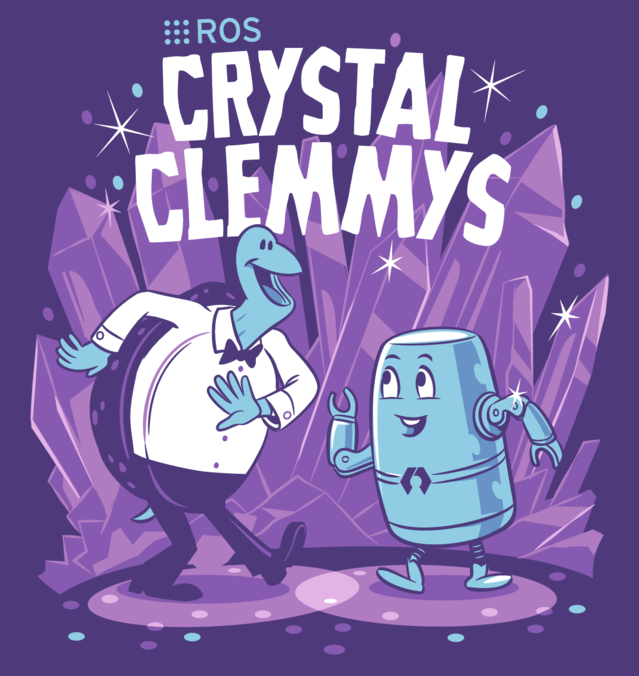

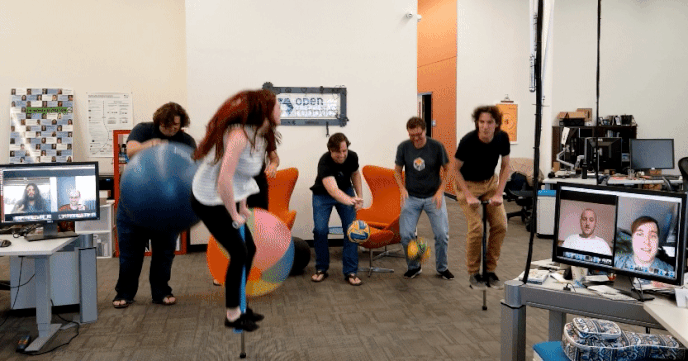

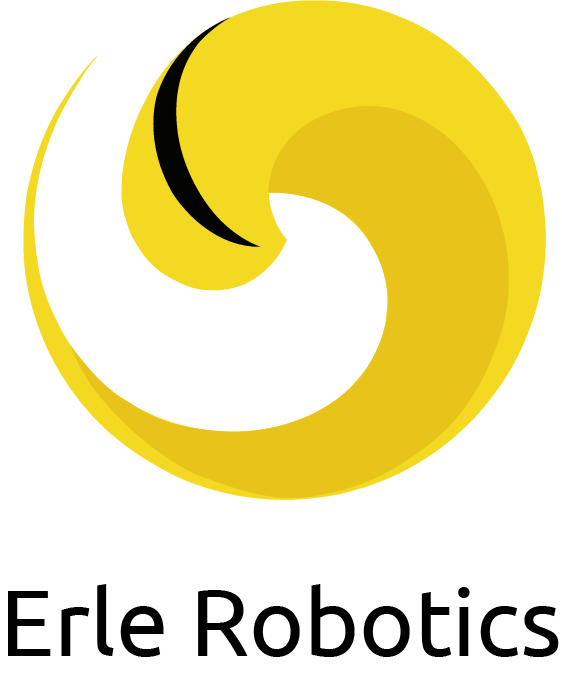
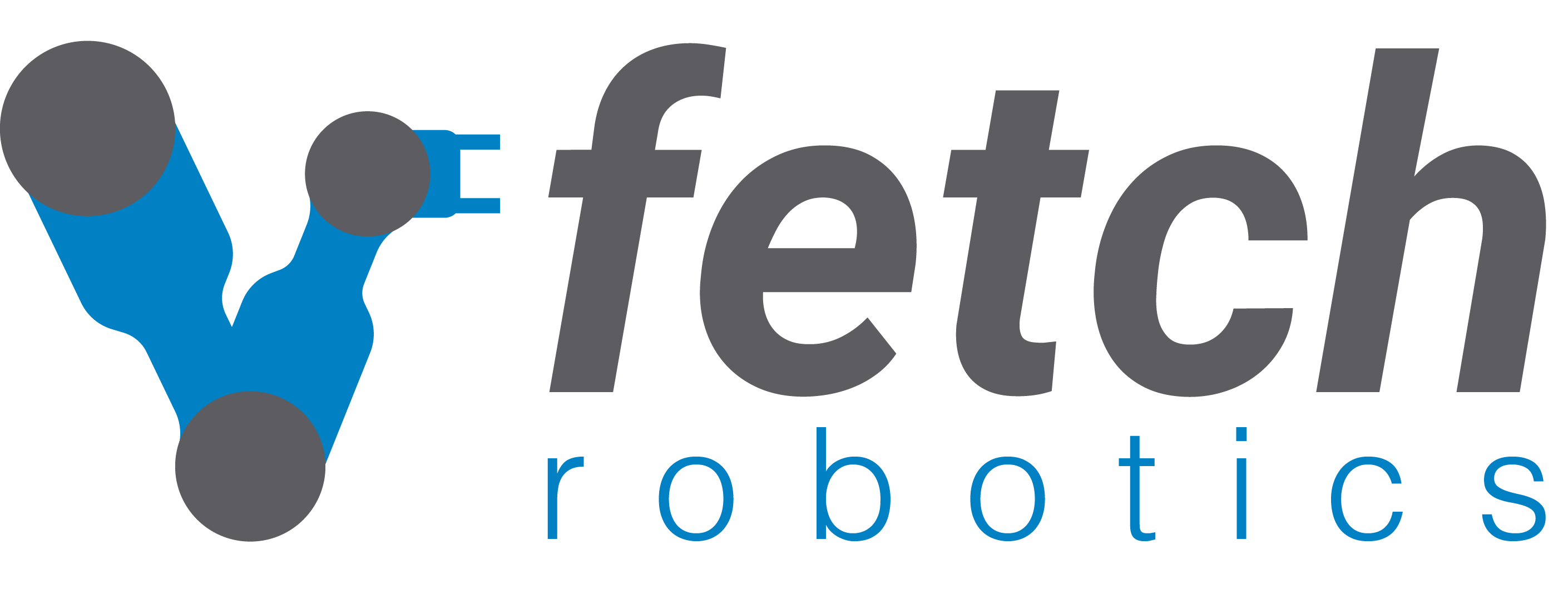

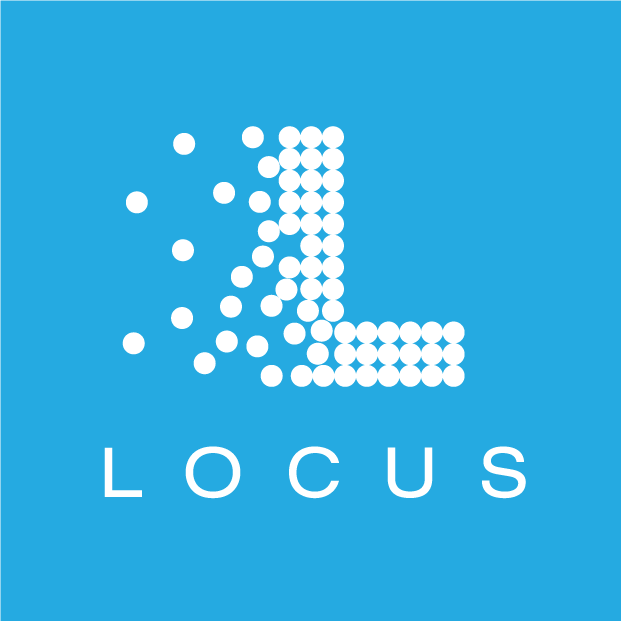
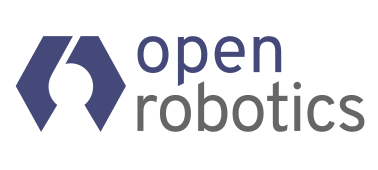


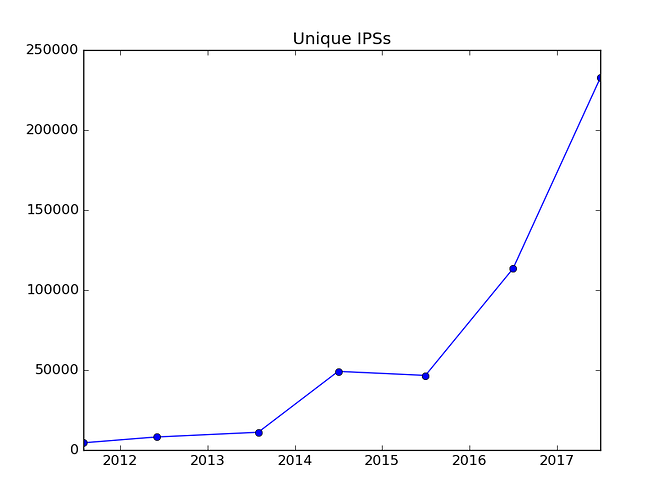
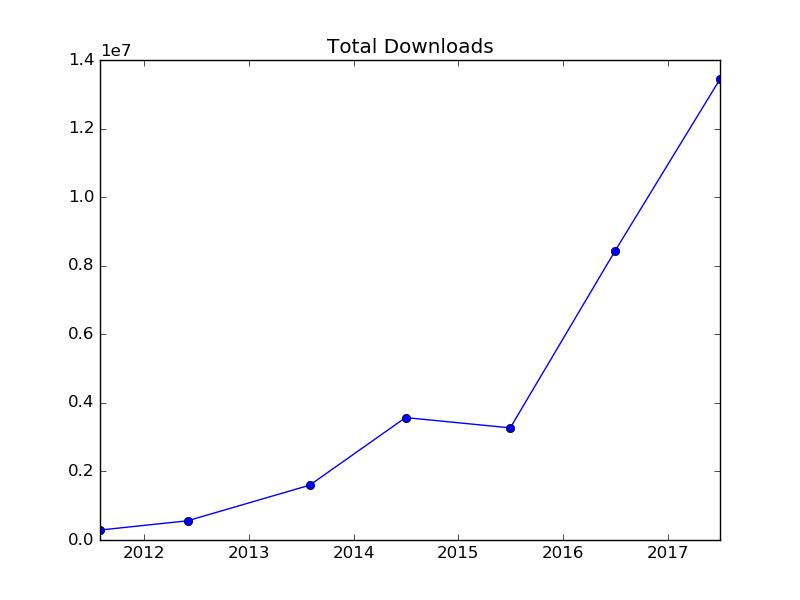
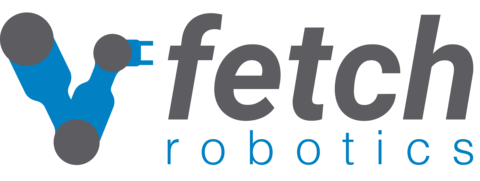




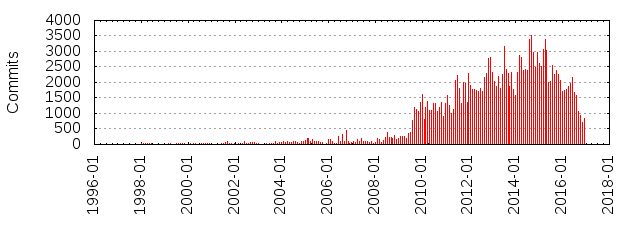
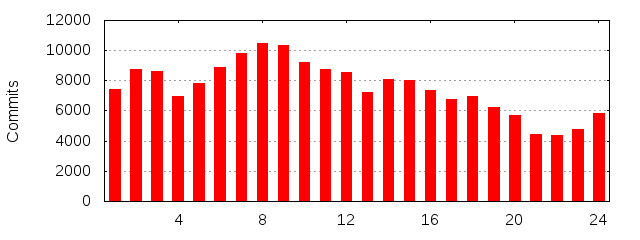
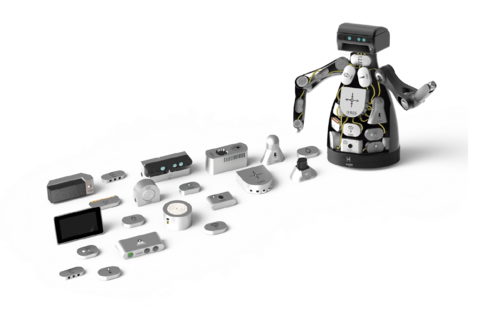
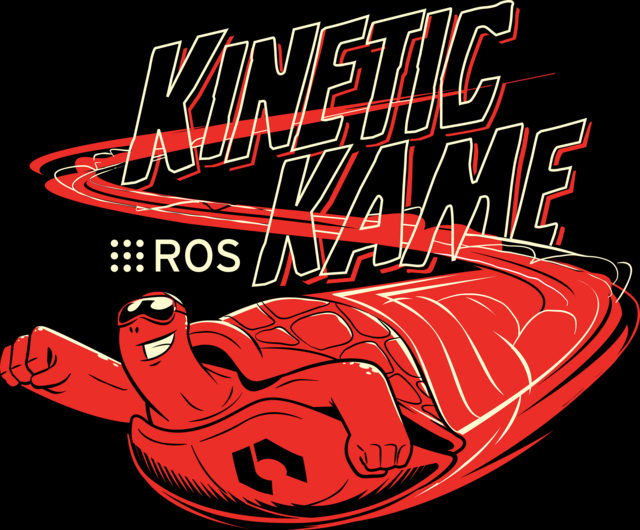
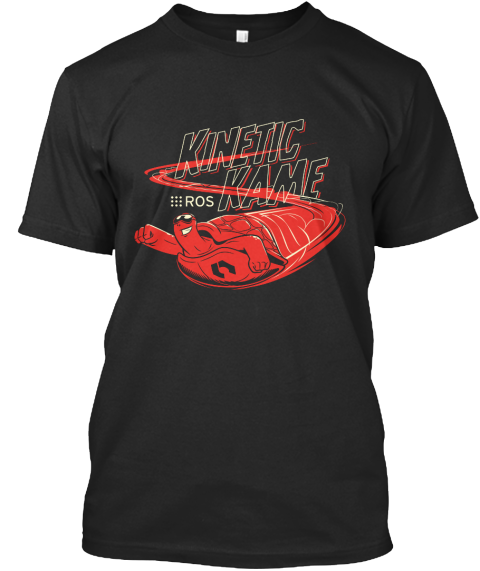

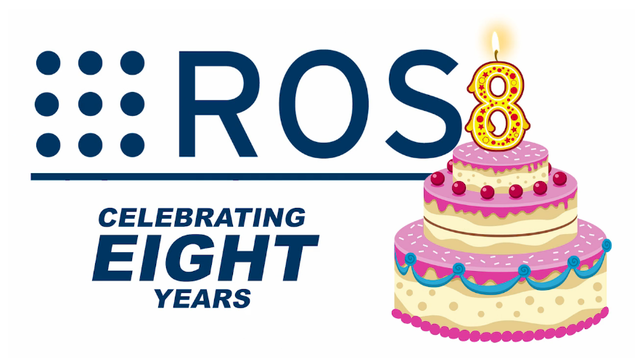
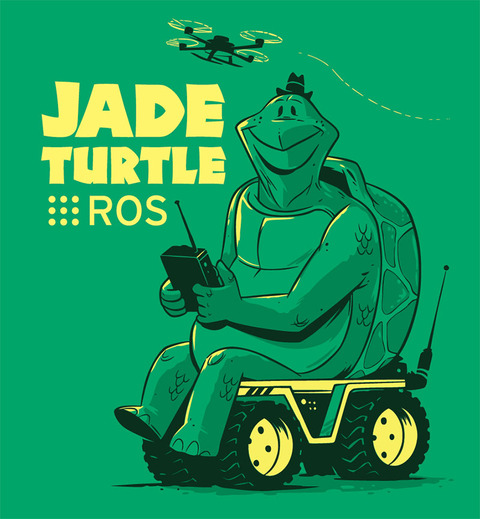
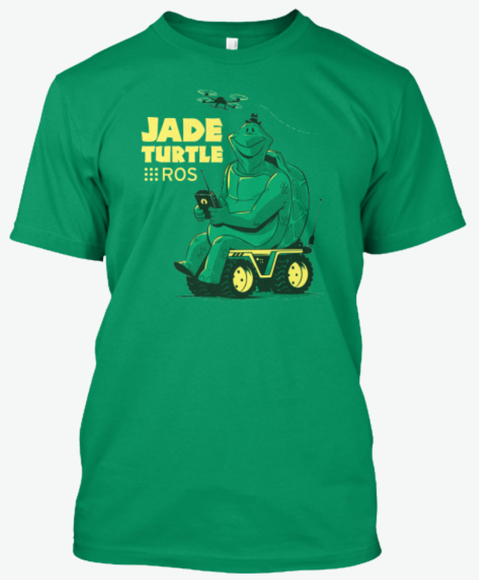
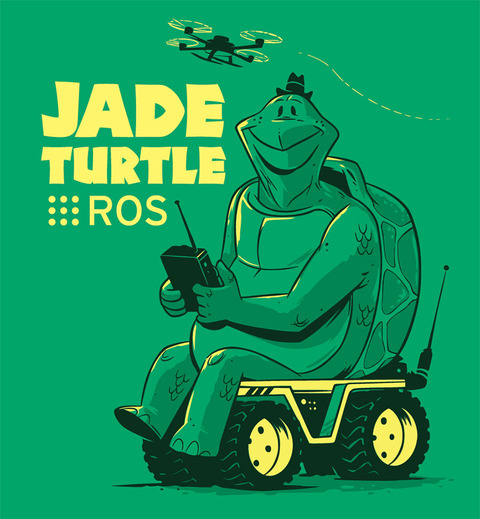
![[NavVis]TrolleyM3_total_3.png](http://www.ros.org/news/assets_c/2014/10/[NavVis]TrolleyM3_total_3-thumb-480x317-966.png)
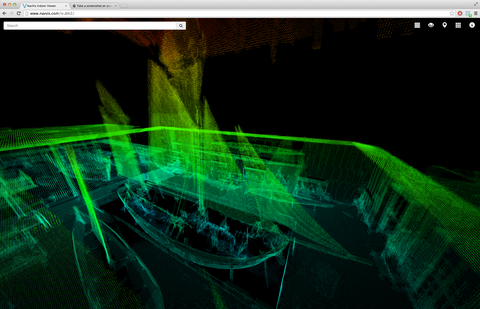
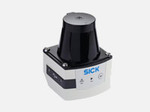
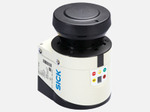
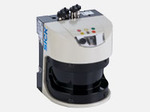
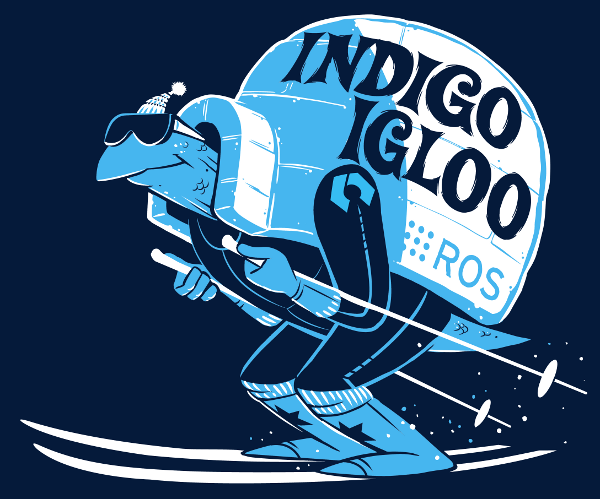



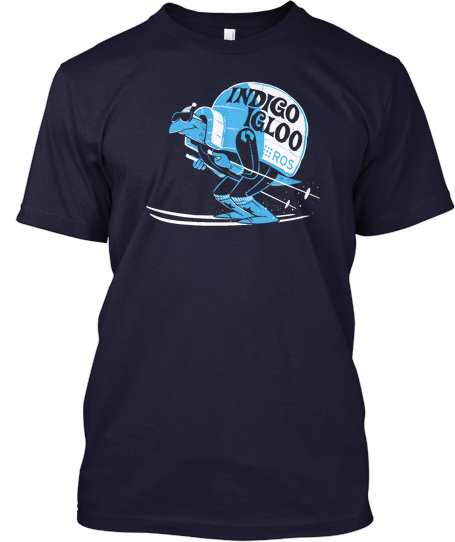
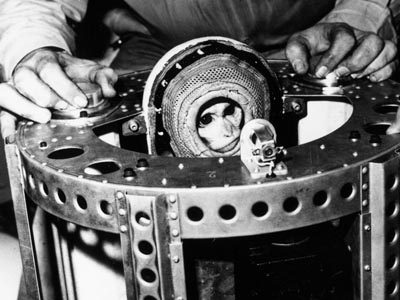
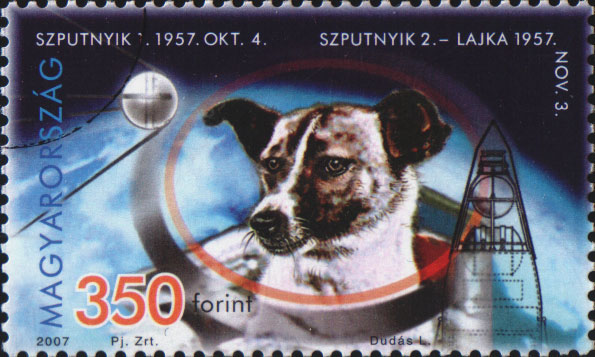
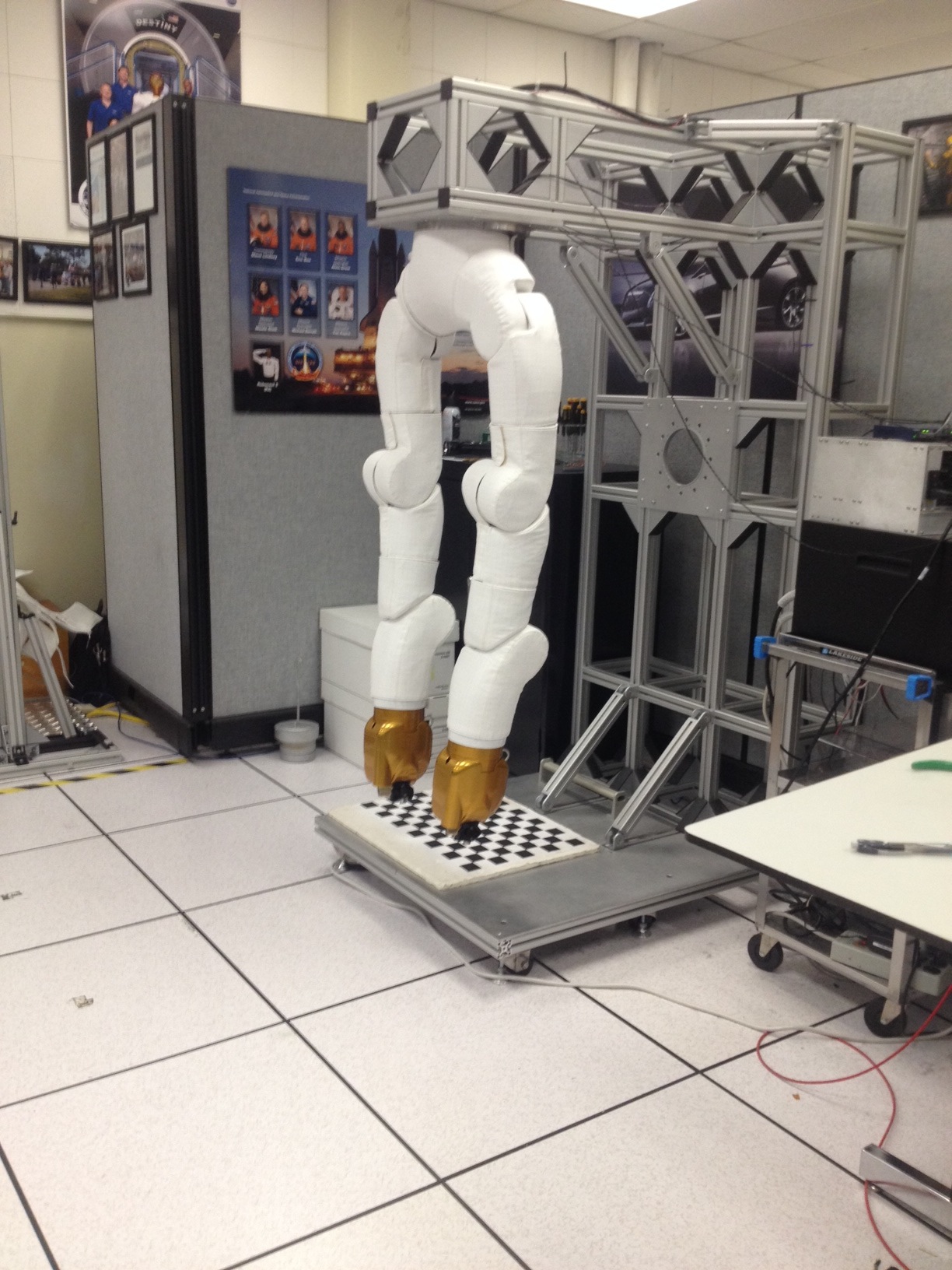

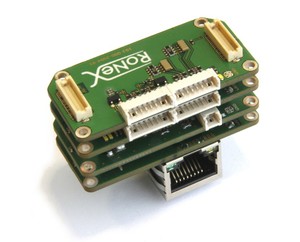
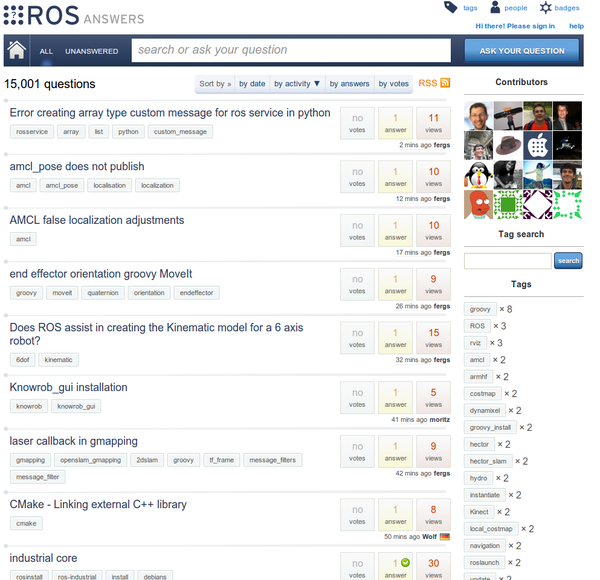
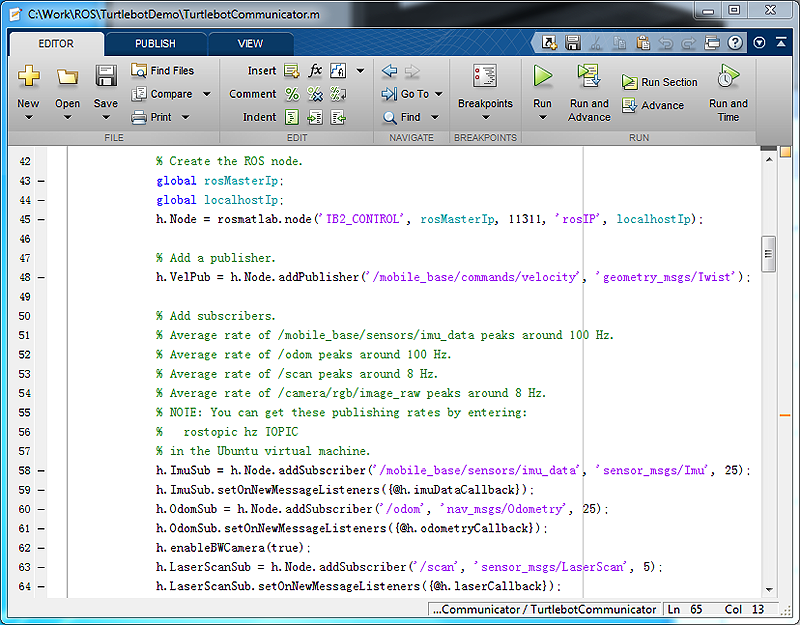
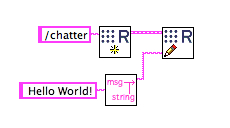
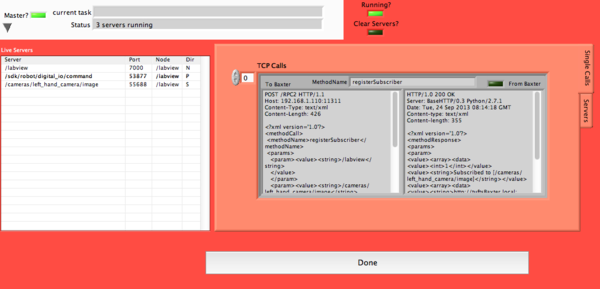
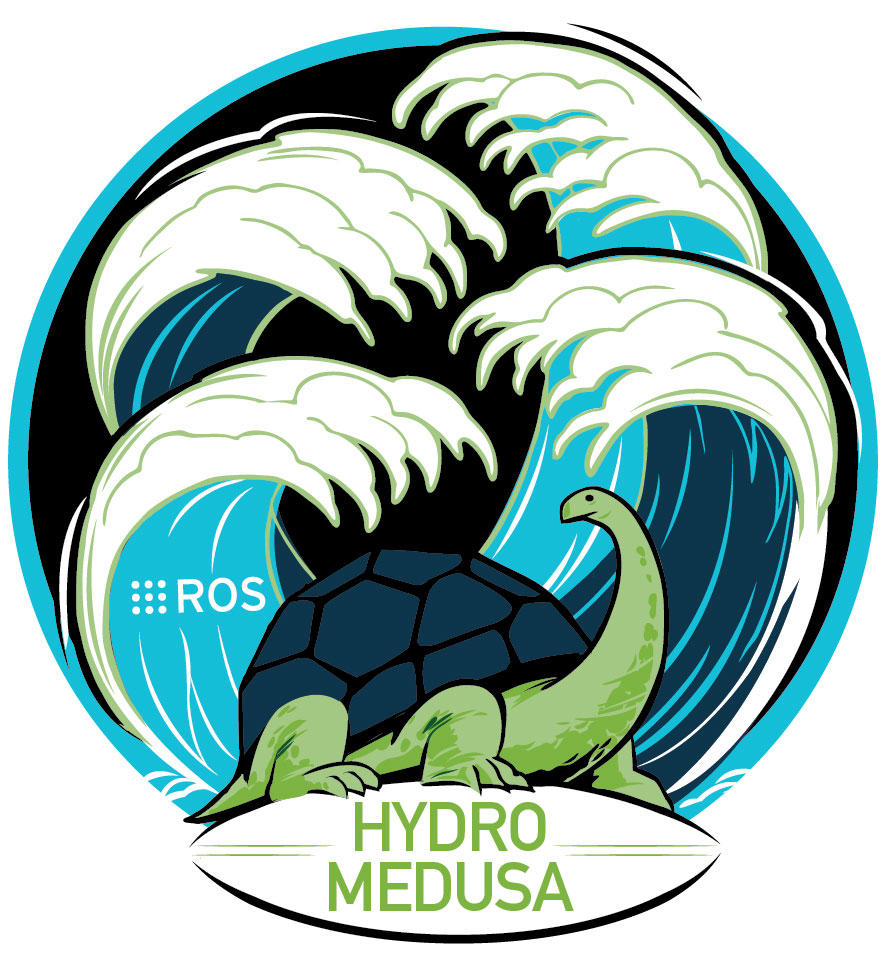
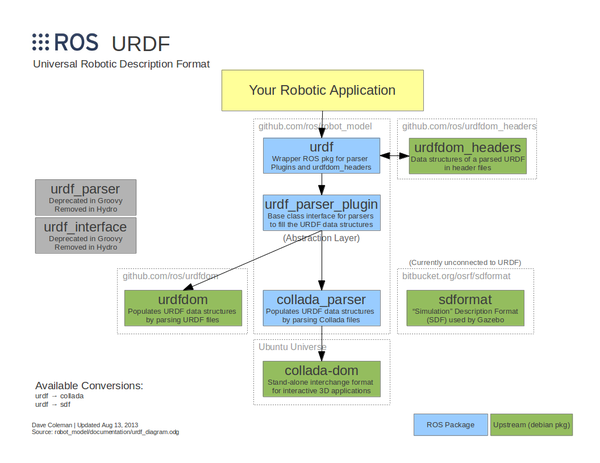
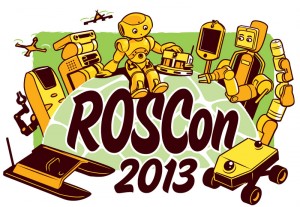

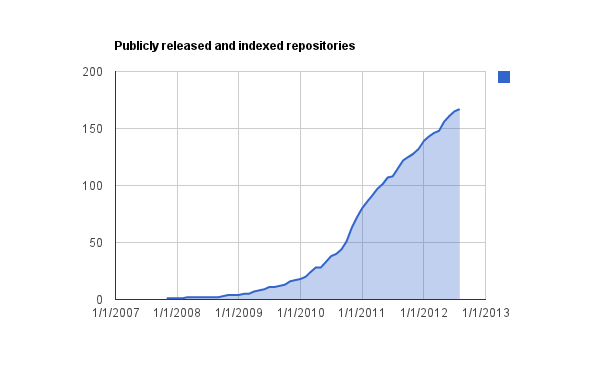
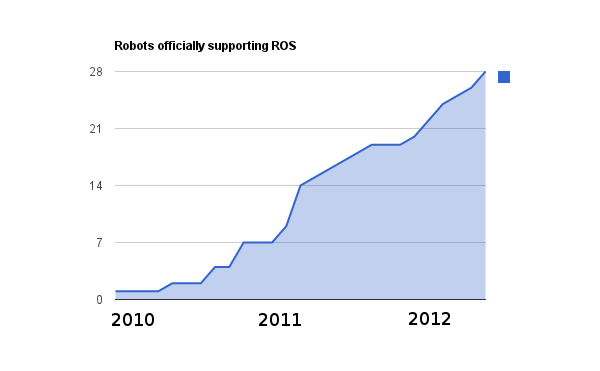
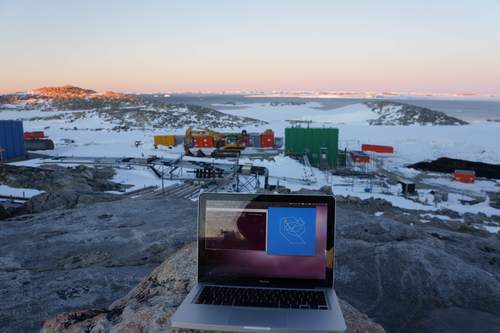


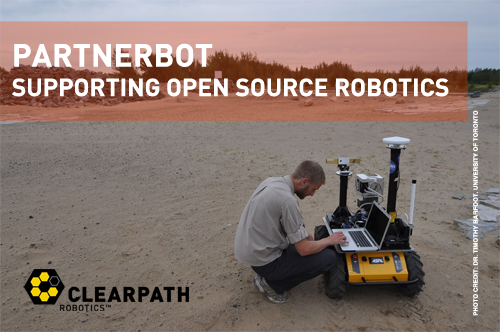

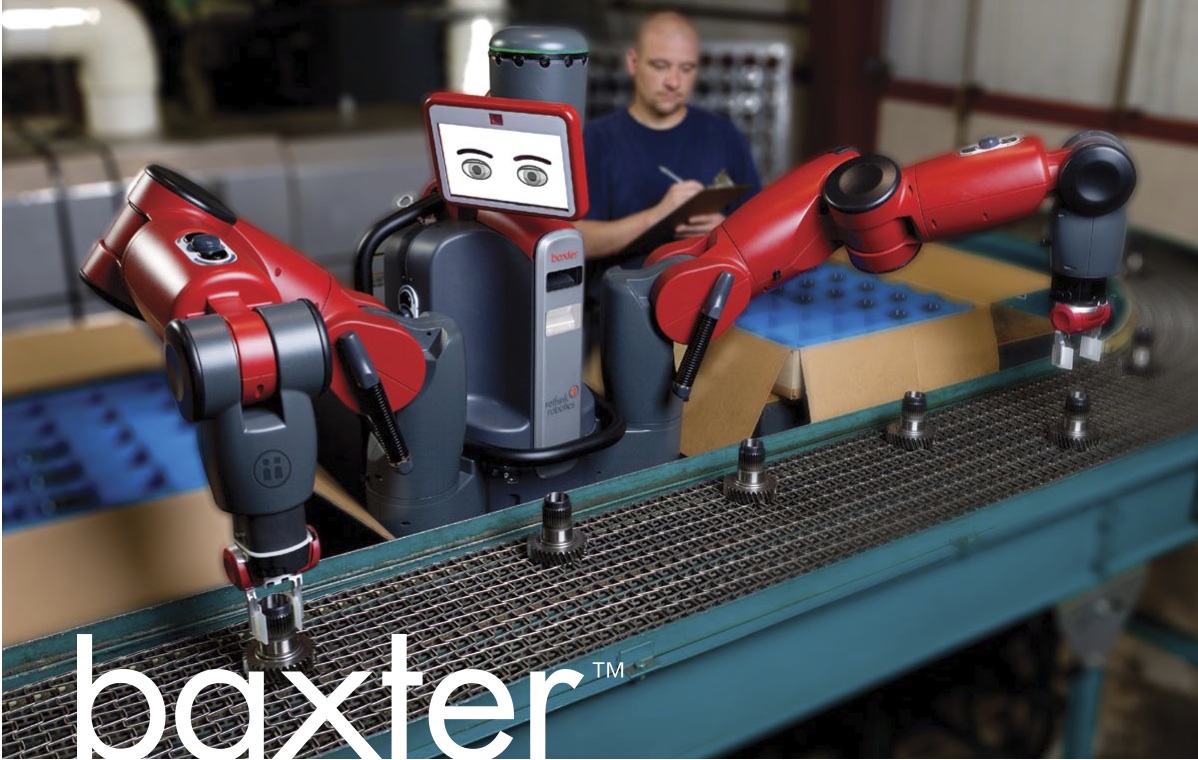



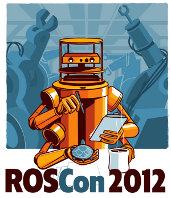
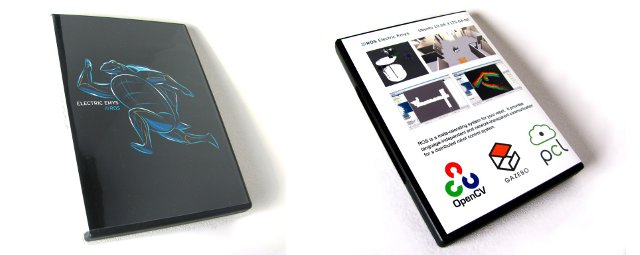
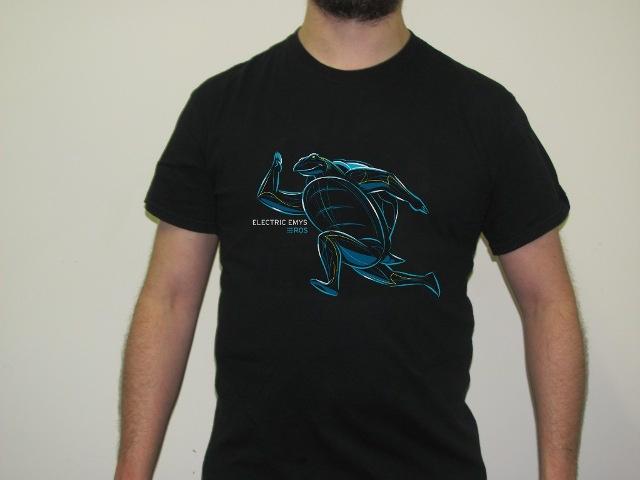
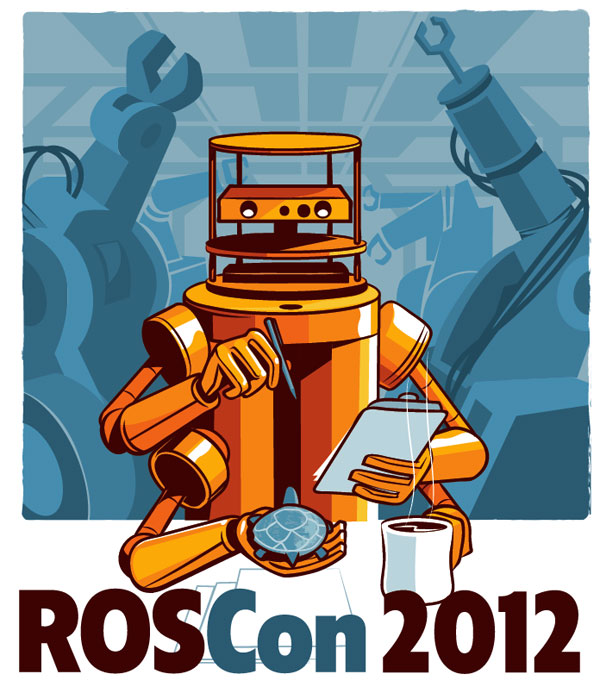
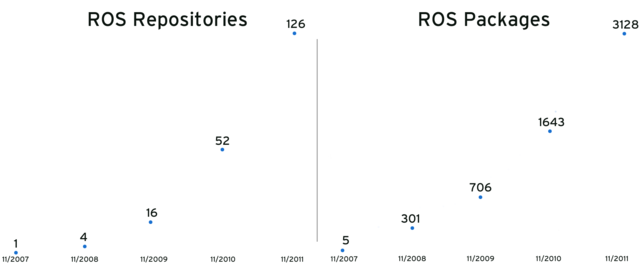
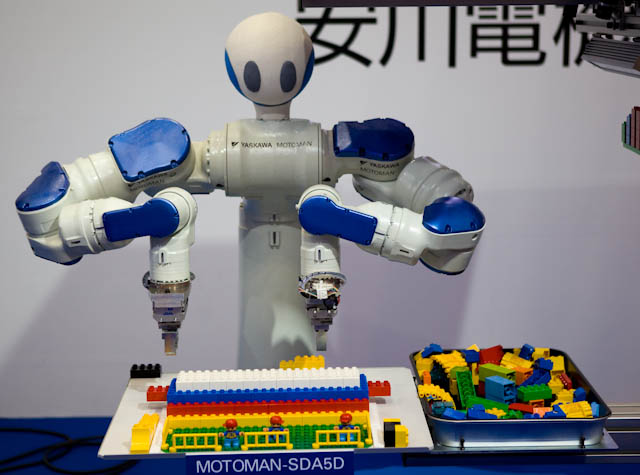
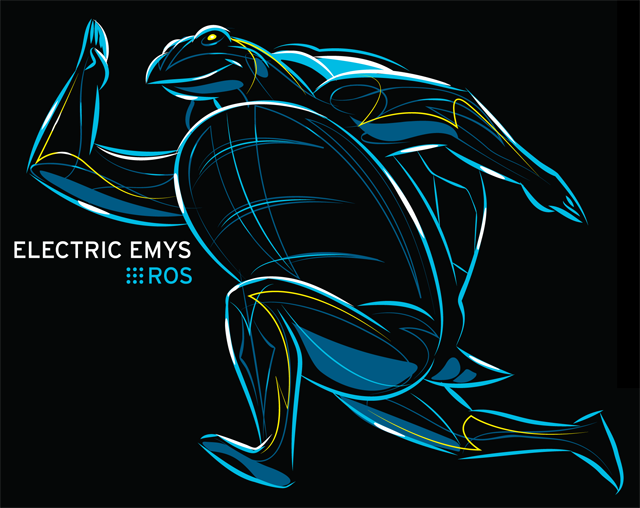
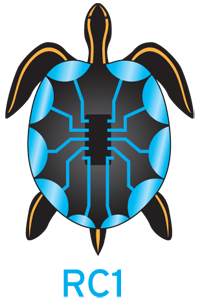 ROS Electric Release Candidate 1 is now available. Thanks to all of you who have participated in the ROS Electic Beta process. We have been able to fix numerous issues as well as bring many more stacks into compatibility with Electric.
ROS Electric Release Candidate 1 is now available. Thanks to all of you who have participated in the ROS Electic Beta process. We have been able to fix numerous issues as well as bring many more stacks into compatibility with Electric. 

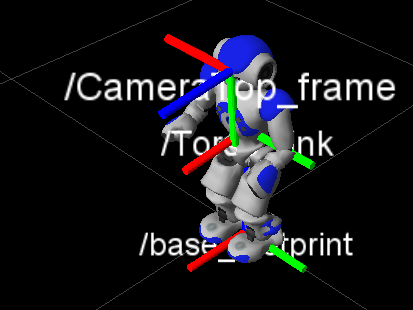
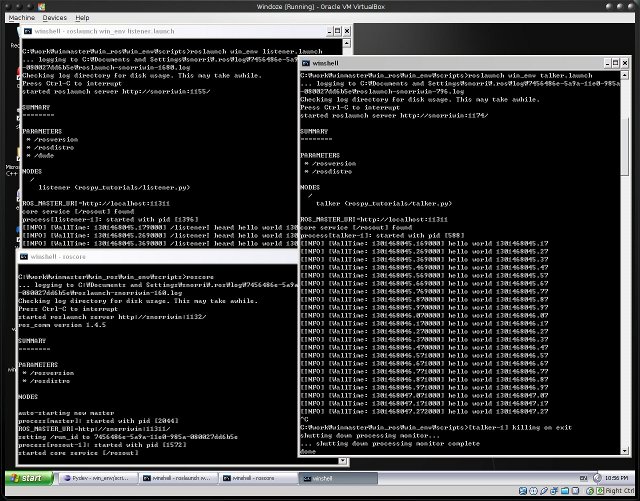

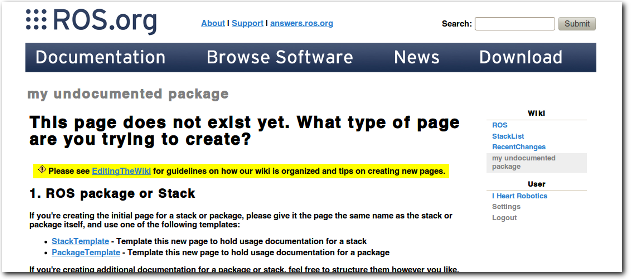




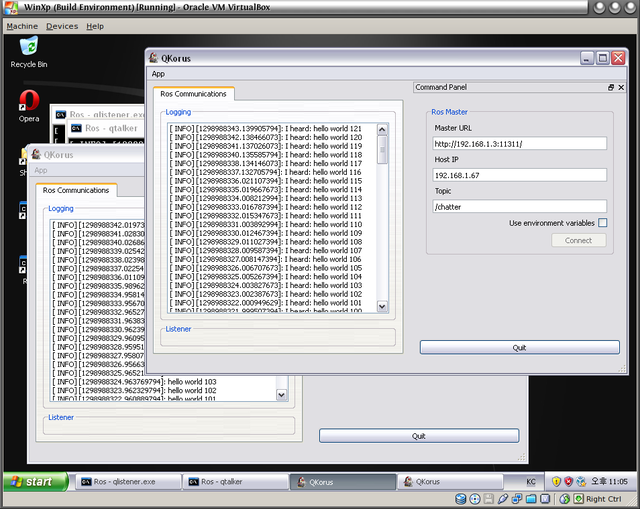
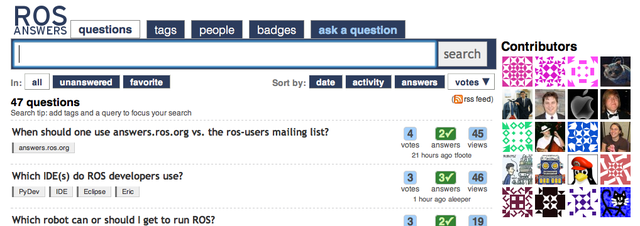
 We were absolutely thrilled with eighteen entries to the
We were absolutely thrilled with eighteen entries to the 
